#relevance for the first few Definitely. most important characters up first.
Explore tagged Tumblr posts
Text
I think im gonna cave & tag Midvalley in my fanfiction
I still don't know just how longterm he'll be around (it'll depend on how things shake out & whether he ends up liking Vash enough to stick around) but Even Tho he's mostly been long-distance present, he's been important to the story and So It Shall Remain for at least a while.
So. Midvalley 4th most major character I guess?
#speculation nation#itnl shit#i hesitate mainly bc A: i hate it when ppl tag brief appearances of characters in longfic#bc lovers of those characters arent gonna wanna read a giant thing for one lil blip ykno?#so i only tag characters if they have a genuine solid role in my stories. brief appearances dont matter.#also B: i still feel like im kinda butchering his character hfkshfjd and im scared of actual midvalley fans judging#im growing to appreciate him more and more. but the fact remains that i never paid him much mind b4 deciding to add him#i was just like 'this sure is a role he would perfectly fill' and i reread his sections to get a feel for him#i think i did an okay job with his first appearance but im scared of reducing him to just Grumpy Not-Friend to vash#in that him and vash have been talking for years & it's ultimately the most constructive socialization they both get#during that time.#so vash treats him like a friend. bc it's vash and he was lonely and midvalley is fun to annoy.#and midvalley ends up kinda forgetting who vash sometimes. but then he remembers & it's Awful#im trying to do him justice. and i'll be able to stretch my legs more once he's physically showing up again.#i swear im thinking about it and trying to stick to a proper characterization!#worse than a minor character not showing up in a fic is a minor character showing up Wrong.#i dont wanna do that to midvalley lovers. and thus the hesitation.#but. But . i think his role is major enough that it's worth tagging. and so. i think i will.#tagging b4 meryl and milly bc i like having the tags be ordered by relevance & chronological appearance#relevance for the first few Definitely. most important characters up first.#and then latter characters by appearance. just works that way.#is midvalley more important to the story than meryl and milly? Well... kinda yeah.#in terms of having a role no one else can fulfill. which will have major effects on the overall story? Yeah.#so. i should tag him. im gonna tag him. just. Ugh. the Anxieties...
0 notes
Text
I wanted to put together some thoughts that I have regarding the passage of time in Pokemon Horizons. I'm a writer by nature who likes to pick out tiny details and examine them to the fullest. Horizons has thrown hints at us multiple times to suggest that time has been passing within the series. And now with a solidly defined time skip having happened, I thought it would be fun to look back and piece together how much time has passed until now!
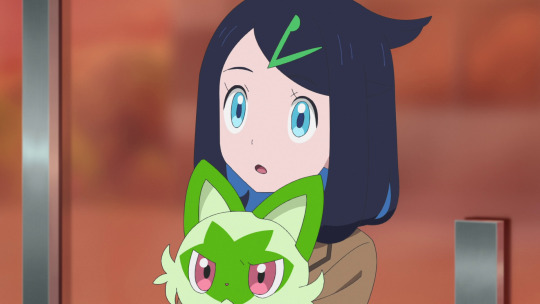

Before I do that though, I want to preface with a few things:
All of this is purely speculation based on loose evidence provided to us throughout the series. I'm not claiming anything I say as definitive fact. This is merely for fun. Everything I say could be completely wrong.
The passage of time in the Pokemon anime is a tricky topic. After all, time "passed" in Ash's series without ever really passing; weeks or months would be stated to have gone by, but Ash himself was explicitly stated to be forever-10-years-old and on an eternal summer vacation. Despite that, growth and the passage of time seem to be important themes at the base of Horizons (i.e. the 100-year tale of Lucius, the generational parallels between Amethio and Liko and their ancestors, how time has impacted Gibeon, etc.). These themes weren't relevant in Ash's series (at least, not in the same way), which is why time was never a focus. That's not true of Horizons though, and that's why I think it's at least worth discussing.
I understand that the characters don't seem to grow/mature much physically throughout the series—even after the time skip. Realistically, if a significant amount of time has passed then the characters should be physically aging more than they are. My argument to that is that this is a long-running anime that's ultimately a marketing tool for the most successful multi-media franchise in the world. They likely want to keep character designs consistent for as long as possible so they can market them on products, goods, and in advertising. If their designs gradually changed every 20 episodes or so to signify physical growth, that would be much harder to accomplish.
With those things in mind, let's get to it! Note: This post is very long and contains spoilers for Pokemon Horizons episodes 001 - 089!
I want to start by addressing Liko's age, because that's what we'll be using as a base for this rough timeline. The tera leaks that came out regarding the development of Horizons stated that Liko was meant to be 13-years-old. I take most things in the tera leaks with a grain of salt; however, I'm going to agree that I do think Liko is meant to be 13 at the start of her journey. My reasoning for that is I believe Indigo Academy is meant to be the equivalent of a Japanese middle school (grades 7, 8, and 9). The average Japanese 7th grader is 12 going on 13. The average Japanese 8th grader is 13 going on 14. And the average Japanese 9th grader is 14 going on 15. (While I understand Liko herself is Paldean, it's stated Indigo Academy is within Kanto--a Japan-based region).
If Liko is 13 then she fits squarely within the box of being a first-year middle schooler. This lines up with Liko being a new student at her school and attending an entrance ceremony with the rest of her class.
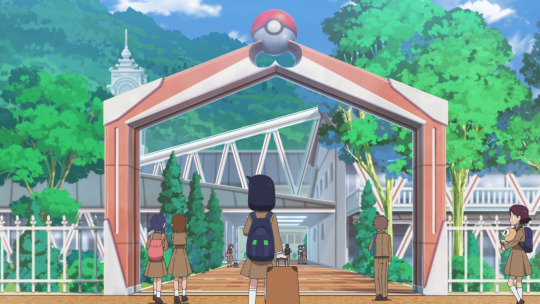
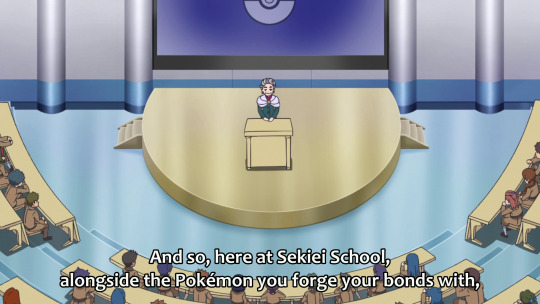
Note that everyone at the entrance ceremony is wearing a leaf pin on their uniform. This is probably an indicator that they're all in the same graduating class (everyone in Liko's classroom is also wearing a grass pin). We also see students with fire pins walking around the academy, and as a result we can assume there are students wearing water pins around somewhere, too (though we never see them). I'm going to guess the fire pin students are the second-year students, while the water pin students are the third-year students (following the Poke Dex starter pattern of grass = 1, fire = 2, and water = 3) . It's common practice in Japanese schools for uniforms to have class indicators on them, so this makes sense. Typically they'll change with each year; however, Liko still has the grass pin even after the time skip. Because of that, we can assume the pins are cycled out with each graduating class (meaning, when the current third years graduate, the new incoming first-years will become the "water" class, while the "grass" class becomes second-years, and the "fire" class becomes third years, etc.).

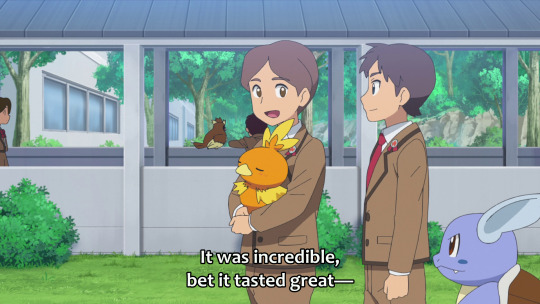
Now that we've established Liko is a first year middle schooler, let's get back to the timeline. The traditional Japanese school year begins on April 1st. With that knowledge, we can assume that the start of episode 1 happens on April 1st of Year 1 of Liko's journey. Going forward, I'm going to be referring to sections of this timeline as "Year 1", "Year 2", and "Year 3", with each year spanning from April to March to reflect the Japanese school year (rather than January to December).
In the first episode, we see Liko arrive at her new school, attend an entrance ceremony, go to class, receive Sprigatito, bond/train with Sprigatito, and then ultimately get confronted by Amethio at the end of the episode after Ann leaves for break. Within this episode alone, there is already a notable time jump. I believe episode 1 starts on April 1st of Year 1 and then ends around July 20th of Year 1. Ann going home for break mid-episode is the giveaway for me. The first extended break in the Japanese school year typically starts around July 20th and ends around September 1st (about six weeks).

A quick aside: I want to caveat all of this by saying if Liko is the equivalent of a first-year middle-schooler, then she would have needed to start the school year at the age of 12. We've already established that she's 13 though, and I personally believe she's meant to be 13 at the start of her journey with the Rising Volt Tacklers. That being said, I'm going to say that Liko is 12-years-old at the start of episode 1, but is 13-years-old by the end of episode 1. That would mean she celebrated her 13th birthday at some point between April 1st and July 20th of Year 1. Take that as you will! My personal headcanon is that her birthday is on April 14th (the day Horizons aired for the first time ❤️). That being said, that's just my personal opinion. Liko's age/when exactly she turns 13 doesn't matter too much.
Back to our timeline - something else of note happens around July of Year 1: Hamber reaching out to Diana. While there's no definitive proof that this absolutely happened in July of Year 1, we can assume it most likely did. We know that Diana was immediately suspicious of Hamber and she knew that he wanted her pendant, which was already in possession of Liko at that point. We also know she reached out to Lucca, who then reached out to Friede to bring Liko home. I can't imagine why Diana would wait to tell Lucca that Liko was in danger, nor can I imagine why Lucca would wait to reach out to Friede to protect Liko. That's why I believe Hamber reaching out to Diana couldn't have happened any more than a week or so before Liko's first confrontation with Amethio.

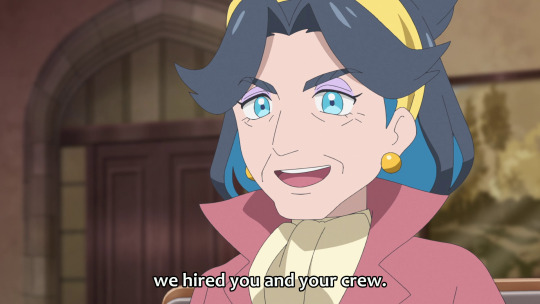
With all of that in mind, we know Amethio showed up at Indigo Academy under Hamber's orders on the same day that Ann left for summer break. Friede came to rescue Liko that same evening, and took her aboard the Brave Olivine. Liko herself even says in HZ074 that this event marked "the start of her adventures". So we can fairly conclusively put this event as happening right around July 20th of Year 1.
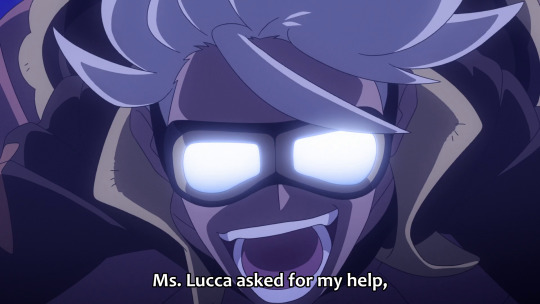

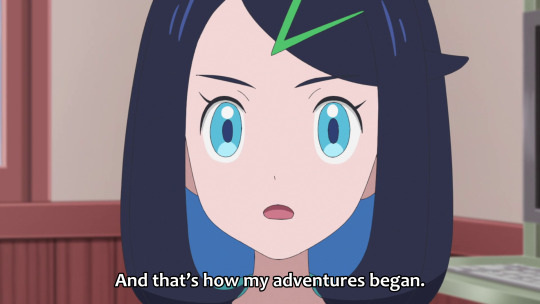
After boarding the Brave Olivine for the first time, Liko experiences a small stint with the Explorers before the Rising Volt Tacklers ultimately stop at Roy's island. The black Rayquaza emerges from the Ancient Poke Ball and Roy joins the crew. We don't have anything to indicate how much time has passed again for a while. That being said, I'm going to assume that approximately six weeks pass between the end of HZ001 and HZ008, putting us at around September of Year 1. My only reason for saying that is because HZ008 is the first time where we see Liko taking classes again, which would indicate that her summer break is over.
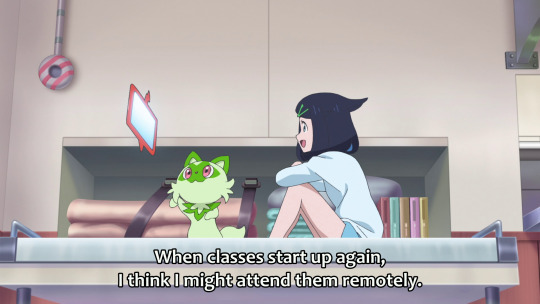
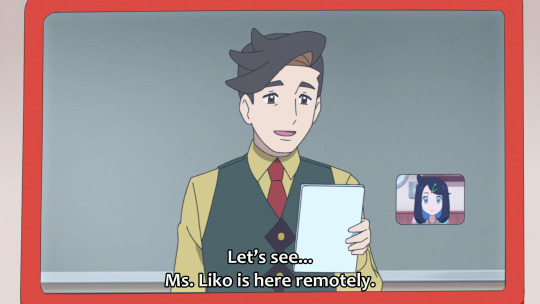
It is worth noting that we do see Roy taking classes remotely in HZ004. That being said, HZ004 seems to happen relatively close to the start of Liko's summer break, so we could assume Roy's summer break hasn't started yet. Alternatively, we could assume the school he attends doesn't follow the standard schedule that Liko's seems to. It honestly doesn't matter too much considering it's the only time we see Roy actively taking classes. I just thought it was worth noting.
Back to the point - the next time the passage of time is mentioned is in HZ024, when Liko and co. meet up with Diana. During their meet-up, Diana claims that she met up with Hamber "a couple of months back". It's not a very clear indicator of the exact amount of time that's gone by, but we at least know Liko's journey began a couple of months prior. "A couple months" doesn't imply a significant amount of time, though. That's why I think we can assume this episode happens somewhere around the October/November mark of Year 1, meaning approximately 3-4 months have gone by since the start of Liko's journey.
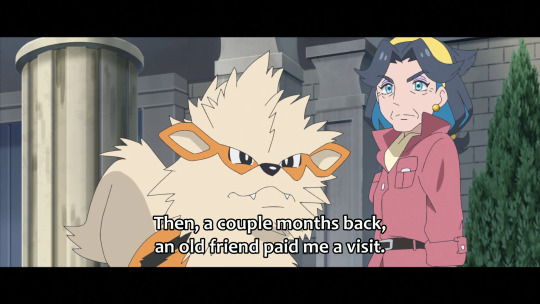
It's going to be a while before we get any super clear mentions of time again, but I like to think we can use context clues to fill in some of the blanks before then and get a rough idea of when things happen. Liko, Roy, and Dot enroll in Naranja Academy and start undergoing tera training in HZ046. While there's no definitive evidence, I'd like to think that they're starting this training at the beginning of the school's winter trimester. I think we can back this theory up with the evidence of Ann, Coral, and Sidian (and seemingly other background characters) all starting the course at the same time, too. So many trainers starting together makes me think it must be the start of a new trimester.


If true, then I think we can say Liko was on her winter break between HZ045 and HZ046. There does seem to be a small gap in time between those two episodes, so I feel like that would make sense. She probably spent that time (about a week or two) at home with her parents. It would also mean that HZ046 (and thus, the start of Arc III) takes place in early January of Year 1. It's also worth noting that Liko's mother states she seems to have gotten taller at the start of HZ046! (Her character model seems the same to me though, tbh lol But it is a cool indicator that she's growing and time has been moving.)

If we follow the logic that Arc III takes up an entire school trimester, then that would mean HZ046 through HZ067 happen from the beginning of January to the end of March of Year 1. The arc itself breaks time up pretty nicely for us, too. I we assume the tag battles against the Elite 4 are the equivalent of a mid-term exam, then we can place HZ054 and HZ055 at around mid-February of Year 1. Likewise, if we consider the trainer battles at the end of the arc to be the equivalent of a final exam, then that means HZ066 and HZ067 happen in late March of Year 1.
With that being said, that means that HZ067 marks the end of Year 1 of Liko's journey. I feel like it's a pretty appropriate end to her first year as a trainer. It goes off with a bang in her battle against Roy and is ultimately an accumulation of everything that she learned in that year. It's poetic in a lot of ways. Plus, as a writer, I like when things bookend nicely like that haha


That brings us into Year 2 at the start of Arc IV (in other words, the start of Liko's second year of middle school). This arc is a little weird because a lot happens in a relatively short span of time. The first mention we get of time passing is in HZ074 when Diana visits the Brave Olivine. During her visit, Diana clearly states that it has been one year since her last meet-up with Hamber. That's noticeably different from the couple of months that she mentioned before!

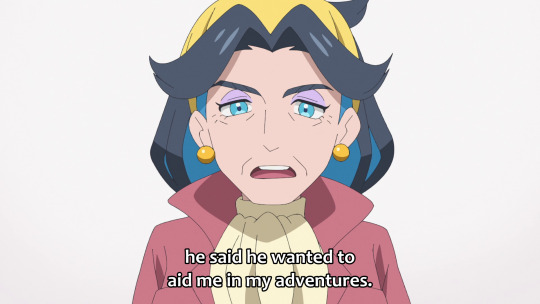
This means it has now officially been one year since Liko set off on her adventures with the Rising Volt Tacklers. That puts HZ074 at July of Year 2. That also means HZ068 - HZ074 happened over a span of approximately three months. That certainly feels like a lot, though I suppose they did travel a fair amount in that time.
It's a little bit difficult to tell how much time passes between HZ074 and HZ084, but I would imagine at least a month or so. That would put the climax at Laqua around August or September of Year 2. HZ084 through HZ089 happen over a span of approximately 48 hours, with there ultimately being a one-year time skip at the very end.
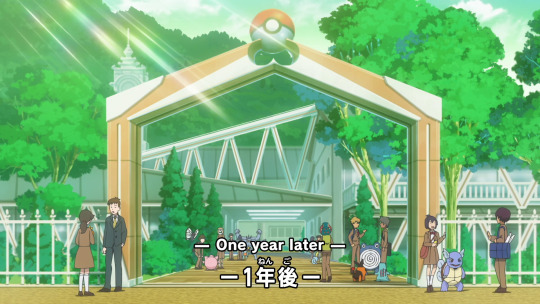


It's worth noting that the time skip is said to have happened one year after the events at Laqua. So, with that in mind, that puts the beginning of Arc V around August/September of Year 3.
I think that breaks down... pretty much everything haha I don't have any spectacular thoughts to end on, so I'm not sure how to wrap this up. But I do want to add that I find it interesting that when you combine the time Liko spent traveling with the Rising Volt Tacklers along with the time skip, that would mean two years have now passed since the events of HZ001. It's very likely that the remainder of the story will happen over the course of another year, making for a grand total of three years. Also, if you subscribe to the belief that Liko is 13 at the start of her journey, then that means she was 14 during the events at Laqua, is 15 post-time skip, and will probably be 16 at the end of the series.
Not only would Liko's journey lasting for three years align with the viewers watching the series for approximately three years, but it would also be reflective of the three-year middle school experience. So, at the end of her journey, Liko and the viewer will be "graduating" from the series, essentially. I Just Think That's Neat.
62 notes
·
View notes
Text
Writing disability: The Super-Crip Trope, and how to avoid falling into it's harmful elements
The "Magical disabled person" or as it's often called in disability circles, the "Super-Crip" is the name of a trope in which a disabled character has some kind of magic or special abilities, which is used to mitigate or erase the impact of their disability. While not a mandatory part of the trope, many super-crip characters are also stronger than their peers, specifically because of their disability's impact on their powers. So why is this trope so unpopular among many disabled people? There's a few reasons. The main one is because more often than not, Super-crips who are written by non-disabled people are often treated as an easy way out of actually having to deal with a character's disability, and a shortcut out of having to do the research into how a disabled character would deal with certain situations. When these writers encounter something they think their disabled character can't do, instead of actually talking to people with the same disability as their character and doing research, they just write that its not a problem because "magic powers go!"
In some cases, but not all, their powers all but erase their disability completely, at least from the perspective of it's relevance to the story. While, to my knowledge, this was never in the comics or movies, A good example of this is a "fan-theory" I've seen among non-disabled X-men fans who claim professor X could use his telepathy to walk, functionally bypassing his spinal injury (Or his leg injury, if we're going off some of the comics' timelines). This would functionally erase his disability, making it an example of both the super-crip trope and the miracle-cure trope.
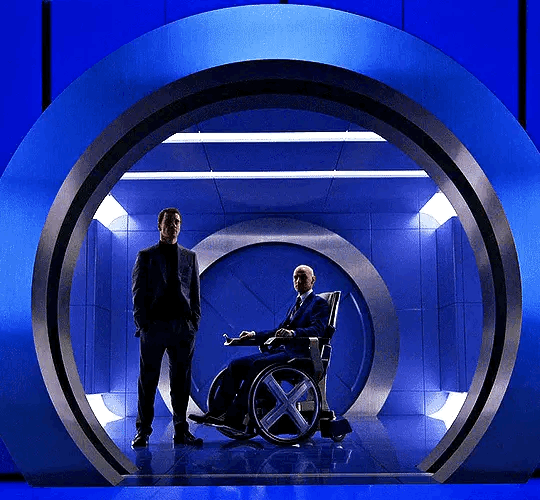
ID: An image of Professor X from X-men, a white bald man wearing a suit, sitting in a silver wheelchair, and another unknown man in a suit standing beside him, framed by a circular doorway, both their faces are partially obscured by shadow. /end ID]
Another reason this trope is disliked is because writer's often have good intentions when using this trope, but they actually end up undermining the points they were trying to make. Often, super-crips are portrayed as badasses in an attempt to show that "you can still be a hero/useful to the plot and be disabled", but the way they portray it usually implies that disabled people, as they exist in real life, aren't useful unless they have something that compensates for their disability or have impossible powers.
So should super-crips be avoided entirely? Some folks in the community think so, but personally, I don't agree. Despite all of what I've said so far, I think there are ways to write characters who technically fit the definition of a super-crip, without it being harmful. There's an argument to be made that "super-crip" specifically refers to harmful version of the trope, so not everyone will consider characters who aren't part of it, but I do, and I think it's important to discuss both the harm this trope can bring, and how this trope can be used in non-harmful ways. Humans (and creatures with human-level intelligence) are adaptable creatures, and in a world where magic exists and especially in worlds where its common, disabled people will find ways to use it to help themselves. but help is the key word there. So let's talk about some ways you can write super-crips, without it crossing the line into becoming harmful. The following are some things for you to consider about your character's disability, how their magic/powers interacts with it, how they interact with the world (and vice versa) and more:
Are your character's powers an aid or a cure?
The first, and one of the most important things to consider, is if your character's powers function like an aid or piece of assistive tech, or a cure? If you boil it down, is the magic helping them or "fixing" them? This can be a cure in the literal sense, as in giving an amputee the ability to shape-shift to get their limb back, or a functional cure, meaning the power essentially by-passes the disability, like the above mentioned professor-X fan-theory. It's not literally curing him, but it might as well be. In a world where this magic or super-powers exist, it's perfectly natural that a character might use the magic to lessen the impact of their disability, but it shouldn't erase it entirely. Give the magic a trade off, make it imperfect. You character can cummon a magic prosthetic, but there's a time limit on how long it lasts for, or their magic needs to recharge it. A wheelchair using mage might be able to engrave magic runes on their chair that allow them to pass over rough terrain, but only to a certain extent. It might allow them to go up-stairs, but it can only be used so many times per day (and make sure you show the times where they need to get up the stairs, but have run out of uses!) Things like that.
Is the power directly tied to their disability?
Is the power you're giving the character directly tied to their disability? There's 2 ways you could read this, and both should be considered. 1. The power is something you, as the author, gave to them specifically because it would help mitigate their disability (e.g. giving a character without arms telepathy so they can still pick things up/hold things because you couldn't figure out how they would be a badass swordsman without it) or 2. Does this character, in universe, have their power specifically because of their disability? e.g. Did our arm amputee develop telepathy through sheer-force of will because they really wanted to be a swordsman, and their determination manifested as telepathy/A god gave them the powers because they felt bad for them/a wizard taught them how to do it because they were inspired by the person's perseverance? If the answer to the first one was yes, perhaps reconsider and do more research. If the answer to the second one is yes, proceed with a lot of caution. Generally, if the powers originate from someone feeling sorry for your character, being inspired by them or anything to do with their determination and perseverance, I'd recommend changing that. However, if the powers came from your character having to adapt something to to their disability, that is really a case-by-case basis thing. Sometimes it works, sometimes it doesn't. your success with it will depend on the character, the setting and the specifics of how.
Is this power common, or is this character the only person in the cast/only person we see with this ability?
Is the power you're giving your disabled character rare, or even unique? It's fine to give your disabled characters powers that are common within the world, but if they're one of the only people who has that ability (or similar abilities), ESPECIALLY if it directly helps mitigate their disability, you might want to reconsider that choice. In a world where everyone can fly, it would be weird if your wheelchair user couldn't without an explanation. But if no one else in the story can fly except your wheelchair user, it starts looking more like you just gave them that power so you don't have to think about accessibility in your world. If you really must give your disabled character the rare/unique power, consider making another character with a similar disability but no/more common powers so you aren't just avoiding the issue, or making the power not related to/impact their disability directly (e.g. giving your leg amputee super-hearing.)
Does this power solve a wider access issue in your world, or does it just make it easier for your character alone?
As a general rule of thumb, if you are writing a story where you don't want accessibility issues to be a thing (e.g. a story set in a utopia), focus on fixing the environment, not the characters. Instead of giving your wheelchair user the ability to fly upstairs, give the buildings ramps and lifts. That way, its a solution for everyone with that disability, no matter their access to things like magic or technology. When talking about super-crips, this is especially important, doubly so if your character's power is rare! I made a (mostly joking) post ages ago about an idea for an earth-bender character in the Avatar universe, who gets fed up with republic city being inaccessible and starts earth-bending all the stairs into ramps. This solves the accessibility issue for them, but also makes their environment more accessible for others without bending to get around. Of course, not every disabled character will want to help/care to help others, but often when non-disabled people write disabled characters with powers, they kind of forget that their character won't be the only disabled person in this world. It often feels like they honestly think fixing things for their character means there's no problem anymore, and that's not the case.
Avoid, "I may have [insert disability here] but I can still do stuff because of my power!"
By this, I mean give your character other ways to address issues relating to their disability than just their powers. One funny example I remember reading in a writing group I was a part of was this author who was bragging about how their paralysed character could still drive a car because they had electrokinisis (the ability to telepathically control electronics). Aside from the fact that wouldn't work on all cars - including the one their character drove, since not all cars have electronic components controlling their acceleration and brakes, the way they described it was extremely complex, and overall not worth the effort when the real-life solution, hand controls, was much, much easier and the setting allowed for easy access to that kind of tech. When I pointed this out to them, they said they had no idea hand controls were a thing, and they had no idea that real disabled people could drive. They thankfully changed it, but there's 2 things to take from this: 1, double check that disabled people can do the things you assume they can't, your magic solution might very well not be needed, and 2. variety is important regardless. No one device, or in this case, magic power, should act as a one-size-fits-all solution. IRL disabled people have lots of tools to help us, I have 2 sets of prosthetics for different tasks, a wheelchair, a grabby claw (for reaching things on high shelves when using my short legs and wheelchair) and hand controls in my car (or at least I used to but we won't get into that lol). My prosthetics won't "fix" all my problems, I need other tools too. keep this in mind when it comes to magic too - it shouldn't be the only thing at your character's disposal.
There's nothing to compensate for.
Remember, don't treat your character's disability as something they need to make up for (especially if they "make up for it" using their powers). Your disabled character is allowed to make mistakes, they're allowed to have flaws both related and unrelated to their disability, they're allowed to not be good at some things, and they don't always have to be the best at whatever their roll in the plot is. In most stories, they should be on par with the other characters, or at least in the same ball-park, but as I mentioned before, a lot of stories don't let disabled characters fail. In order to justify them even being present, they are often made out to be the undeniable best, almost to mary-sue levels of perfection and super-crips especially fall into this issue a lot. They can be good at things, but balance it out, like with any other character.
You don't have to use all of these points, but they are still worth at least considering. For example, Toph fails all of these points except the first three. Despite that, she's still one of my favorite disabled characters in media, even if she's not perfect, and I'm not alone in thinking that. I've seen lots of other disabled people say the same about her. Which of these points you should use will depend on your story, character, setting and tone. As I've mentioned a few times now, the key is striking a balance. At the end of the day though, these are only general pieces of advice and a lot more factors go into making a character like this work. only disabled people will be able to tell you if you've pulled it off, and that's where beta-readers and disabled sensitivity readers come in!
Also, remember, these kinds of tropes don't just apply to the more common/well-known disabilities like amputations and wheelchair users, that's just what I have experience with! Be sure to research any disabilities your character has to ensure you are not falling into these tropes.
#Writing Disability with Cy Cyborg#long post#writing disability#disability representation#disabled#writing advice#writeblr#authors of tumblr#writing#authors#writer#on writing#writers on tumblr#writblr#writerblr#creative writing#disability#disabilities#actually disabled#super-crip#disability tropes#disability in media#magical disabled person#tropes#writing trope#writing tropes#good tropes#bad tropes#Gif
947 notes
·
View notes
Text
Sendoh Akira: A Character Analysis (Translated)
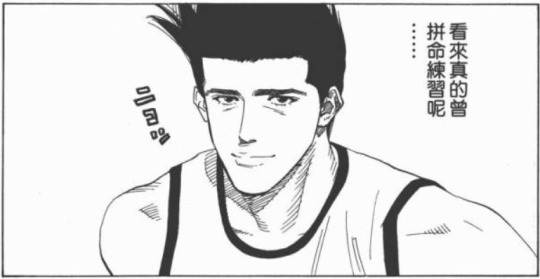
One of the best and most memorable Slam Dunk character analyses I’ve ever read was actually an answer to a question hilariously titled: “How do I marry Sendoh Akira?” (Author: 木子妞 - Link). The first half of the answer was particularly incisive and made me consider things I'd never noticed about Sendoh.
The original is in Chinese but here's an English version of the first half thanks to a nifty translating tool (I've edited for clarity and brevity; parts in bold for emphasis). Let's dive in!
~ Start of translation ~
Question: How do I marry Sendoh Akira?
Answer: 1) MENTAL SPEED
First, you have to be excellent - not in a Mary Sue protagonist way with incredible beauty and tremendous wealth etc.— these aren’t relevant in Sendoh’s eyes. Instead, your emotional intelligence needs to be genuinely outstanding.
Why? Because it’s important to understand Sendoh Akira as a person, and he’s not an easy person to understand. I’m not talking about his interests either; those are secondary; it's mainly about understanding his inner world.
The thing is, Sendoh is actually a very lonely person, and I think this loneliness is not by choice. No one in Ryonan really understands him; they are not on his level and don’t genuinely understand him. Case in point: in the match against Kainan, right at the end of regulation time Sendoh went for a dunk but deliberately went at a slower speed to allow Maki to catch up to him.
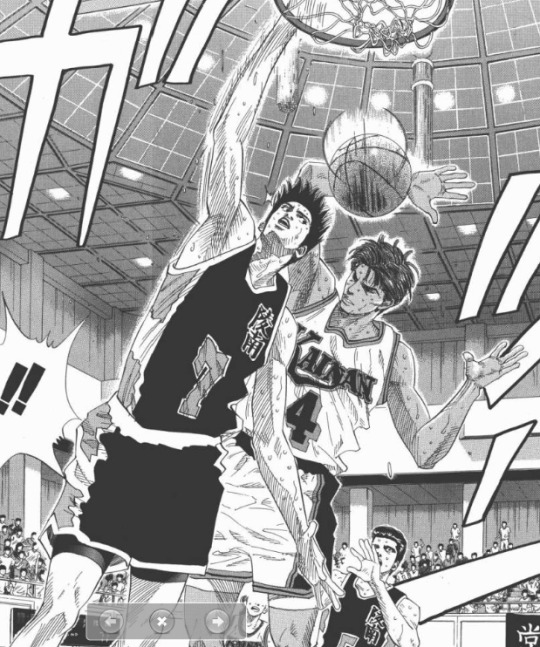
Sendoh’s idea of drawing a foul from Maki to turn the shot into a 2+1 would’ve meant that Ryonan would win the match by a point. But in that entire arena, only Maki, Fujima and Aida understood this plan. Even Coach Taoka got excited about getting into overtime without realizing that if the 2+1 plan failed, Ryonan would almost certainly lose.
Sendoh's mind works too fast for most people to keep up with, and his standards are high. He also can’t be bothered to explain more than is necessary and so as a result is forced into solitude. Which is why if you want to draw his attention, you need to be sharp enough to keep up with him mentally — imagine how high your IQ must be for that!
2) IDOLISATION
Second, don’t treat Sendoh like a genius or idealise him too much, and definitely don’t put him on a pedestal to worship. Accept the real him, including his flaws. And there are a few.
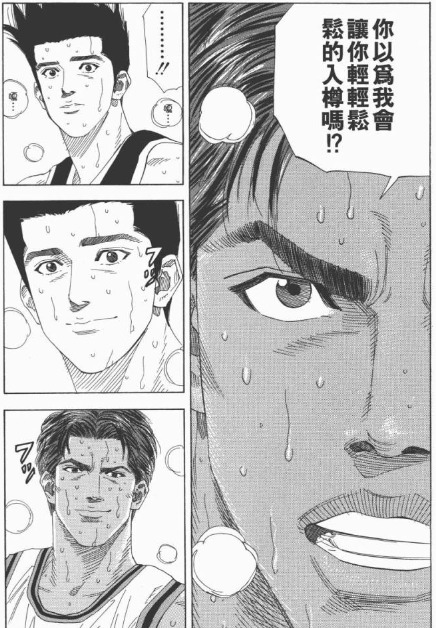
For one, Sendoh is quite stubborn. In the aforementioned match against Kainan, Maki at one point said, "Don’t think I'll let you dunk easily." To which Sendoh responded, "I'll definitely dunk to show you. Just once in this match..." And he was as good as his word, pulling off the dunk right at the end of regulation time as part of the aforementioned 2+1 plan.
Sendoh also holds grudges. In the prefecture match against Shohoku, after Miyagi managed to score against him, Miyagi mocked him, saying, "Did you think I'd always wait for you to block?" Later, when Sendoh noticed Shohoku was running into foul trouble, who did he target first? Who did he go after to draw another foul? Miyagi.
Sendoh can also be petty. When Rukawa scored quickly, everyone marveled at the speed of his shooting that even he, Sendoh, couldn't block, and Sendoh responded by scoring right away using the exact same technique as Rukawa.
In other words, the so-called basketball genius/living legend isn’t necessarily the real Sendoh Akira himself. Sendoh the basketball player gets lionised a lot but the real Sendoh actually has a temper.
The main difference that sets him apart from others is that he isn’t as easily bothered by things. Sendoh is more mature than his peers, and he’s able to keep most of his emotions in check or bury them deeper so it's harder for people to notice them.
But if you really want to draw his interest on the romantic front, you’ll need to treat him as an ordinary person. That’s how you'll earn his respect. To be clear, it’s not about playing hard to get; it’s about seeing him with a calm mind.
Because of Sendoh's relatively mild temperament and easygoing nature, when it comes to piquing his genuine romantic interest, Sendoh Akira is the most difficult man to deal with in all of Slam Dunk. Much more difficult than Rukawa.
Rukawa can be lured by some top class basketball intel, but Sendoh Akira has almost no weak points to exploit, precisely because so little gets him worked up. The only seeming weakness is his loneliness.
If you can 1) make him feel understood and 2) do so without needing to say it out loud, then you might have a chance with him. These two points are prerequisites. And if you feel you could pull off both points and truly love him to the point of marrying no one but him, then continue reading for some specific methods, though they're not guaranteed to work.
~ End of translated first half ~
We'll skip the second half since it's not that relevant in terms of character analysis. (But it is worth a read if you are a Sendoh fan. It covers a rather elaborate plan!)
On the topic of Sendoh, I would also add that him misremembering Sawakita's name isn't pure coincidence/a gag but perfectly in keeping with his character IMO. He seems the type that is competitive right in the middle of a match but once the match is over, he doesn't hold on to losses as tightly as, say, Rukawa. I mean, let's face it. If the same thing happened to Rukawa (losing big time to Sawakita) you can bet he'd remember Sawakita's name till the end of time. But Sendoh doesn't take such losses quite so personally, and that's why he'd be the type to misremember the name of someone who beat him.
95 notes
·
View notes
Text
Finished the second graphic novel! The pacing was QUITE fast again, which definitely hurt it in some places (The battle between Brokenstar and his rogues VS ThunderClan felt HORRIBLY paced with how it just suddenly ended, and warrior names being gained happening either off-screen or mentioned in passing I wasn't huge on), but unlike the first one, I do think it had the benefit of the ENTIRE book being the same breakneck pace, whereas the first book started slower and then suddenly SPED through the final third. Ultimately I won't hold it TOO hard against the graphic novels though, given that they have a LOT of material to cover and can't go on forever, but I do feel there's some aspects that could've been done a bit better.
The ableism is almost entirely fixed! This is a MASSIVE boon and makes things SO much better to read. They wouldn't have been able to reach the levels of ableism of the originals ANYWAYS just thanks to the change in medium, we can't spend a million paragraphs on Fireheart's inner monologue about disability being the worst thing that could ever happen, but beyond just that, they made an active effort to make Cinderpelt her own person and have her own agency in her life, and I MASSIVELY appreciated that! Cinderpelt chooses what she wants and she is ACTIVELY given that choice, with Fireheart being an active member in making sure she knows she CAN choose, as opposed to original Fireheart who sees Cinderpelt enjoying her job and cries about how she can't be a full person. Thank God Fireheart is no longer the worlds most ableist cat on the planet
Unfortunately, they didn't change Princess's weird dialogue about wanting to "choose Cloudkit's fate", but it's both not as bad as the original in my opinion, but also gets contrasted later on with Sandstorm saying how Cloudkit could choose to become a kittypet if he wants, just as Fireheart chose to become a warrior.
I really like the contrast between Silverstream's death and Brokentail's, I love Yellowfang repeating the line about not being able to save everyone, with the extremely clear visual indication that she actively killed him. Works super well!
I think the condensing of Cloudpaw's arc actually served itself well. Given how fast these books are and how much there is to tell, shortening Cloudpaw's arc down to just a few pages benefits in that it still gets the point across, but doesn't take up time from other important story beats that need to be hit
As per usual, the ThunderClan fire remains my favorite scene in the first arc. While, thanks to the change in medium, the fire itself was foreshadowed as much or in the way I absolutely adore from the originals, I think it was still absolutely great, I love the ThunderClan fire for how tense and dramatic it is without relying on battles, it really feels like the absolute calamity that it is
The ending was, by far, the best part of the book. I think the book as a whole WAS quite good, but the ending, with Bluestar yelling against the background of dogs, is VERY well done foreshadowing and a way to integrate the prologue of the next book seamlessly, and I think it also really works to sell the emotion of Bluestar, while also not being SOLELY metaphorical, given that we know the dogs will be relevant next book.
As per usual, art was fantastic! I think they have some issues with pushing expressions just a tad too far in some places, there's one in particular of Fireheart yawning that just feels a bit too much, but as a whole, I'd rather they be too expressive over not expressive enough. And even with that said, the too exaggerated expressions are not that prevalent, and I actually think the book does the more somber, subdued expressions quite well, basically any scene where a character expresses closed mouth or mostly closed mouth shock really is done quite well
As a whole. I loved it! I think these graphic novels are basically the only piece of genuinely good warriors media in an extremely long time, and I'm excited to see how they handle the finale of arc 1!
#warriors#warrior cats#wc#warriors spoilers#wc spoilers#warrior cats spoilers#i really. REALLY hope they make the finale not as catholic as the original. god please#do not make the final message of the arc 'our religion is what makes us moral'
28 notes
·
View notes
Note
According to you, Bakugou doesn't have a lot of relevant weight in the plot even though he was the one who ended up with AFO and learned to be a hero? Aren't these important concepts in bnha, what does it mean to be a real hero? Besides he had even better fights than Midoriya and he did achieve his goal, horikoshi indeed treated him like a main character.
Okay, I'll break this down one at a time.
Bakugou landing the final blow on prepubescent All for One is not a theme, it's a plot point.
Yes, learning to be a hero is a running theme throughout BNHA and it applies to any number of characters outside of Bakugou including Izuku, Ochako, Iida, Shouto, etc. However, Bakugou is one of the least effective applications of that theme.
There are other characters who more effectively implemented the aspects of the becoming a true hero character arc like (1) a hero initially in the business for monetary gain (Ochako and Mount Lady), (2) the hero hopeful who didn't prioritize saving others (Iida), and (3) the hostile hero student who didn't respect others (Shouto).
Why were their arcs more effective? Because BNHA was also about going beyond expectations (plus ultra). It took Bakugou until the end of Act Three to meet society's existing definition of a hero. Saving and cooperation mattered even during All Might's time. And it's unclear even at the end of it all whether Bakugou just incorporated saving as an element of winning rather than valuing it for its own sake.
Compare that with say Ochako or Iida. Ochako always understood the value of saving in the abstract (see the entrance exam), but it was secondary to her personal financial goals. Saving became her priority as a hero after the Overhaul Arc. From the Joint Training Arc on, she went beyond the standard concept of a hero by including heroes and villains in who she believed should be saved.
Early on, Iida outright ignored those in danger in the entrance exam (Izuku and Ochako) and during the Hero Killer Arc (Native) in the pursuit of his own goals. He determined that while he still believed Stain was a terrible villain, he was right about Iida not being fit as he was to be a true hero. He worked hard to become a more selfless person. By the Provisional Licensing Exam, he was sprinting past the expectations of a pro hero by making sure all of his classmates passed the first round before passing himself.
These last few comments seem to be a dig at Izuku for some reason. I have no idea what you mean by better fights. Better by what metric? Since Bakugou is more of a natural genius character, his fights tend to be more fluid in a purely visual sense compared to Izuku's fights. But fights in shounen manga are vehicles for communication, confrontations of opposing forces or ideas. Bakugou is so self-absorbed as a character that his fights are rarely interesting in this way because he refuses to listen to others for the most part.
Neither Izuku nor Bakugou achieved all of their goals. Izuku did not physically save Shigaraki. Bakugou's stated goal since the beginning of BNHA was to become number one hero, and he was still not number one hero in the final chapter.
Bakugou is certainly written with some standard shounen protagonist tropes with the ugliest aspects of them cranked up to eleven. He's far too sequestered from most of the main plotline to be "the main character" of BNHA though.
45 notes
·
View notes
Note
Heyyy, how are you?, no memes this other time 🥲 (i am storing them for when the time is right)
ANYWAY 🙂 I wanted to seek advice from you about OCs. Like how do you introduce multiple OCs in the story at once? I get that people might not like a story full of OCs, but the nature of my story doesn’t allow me to avoid this entirely.
Characterisation has been so much fun but, introducing them. Is. Worrying. I’m asking you bc Out of Sight is pretty much the only IE story that I think has good OCs, I see some truly well written stories out there but, they’re loaded with OCs and it just ain’t the same :(
also, if you haven’t already, please do consider making a bundt cake, yoghurt in the batter will make it taste heavenly 🤤 (greek yoghurt if you want it to be fancy shmancy)
Have a good day (or night)!
No memes? 🥺
To be honest, I used to have a hard time with OCs. Didn't like writing them, certainly didn't like reading about them - still don't, in many cases. A lot of time OCs are overly perfect, overly extra or just plain annoying.
One big issue with that is the characterisation itself. We've probably all come across a Mary Sue OC at some point. The most flawless, beautiful, quirky appearance you can imagine, super cool fighting or dancing or singing skills, outshines everyone else and makes them seem dumb. Utterly flawless. Utterly boring. So, while this is not what you asked, I do want to add this short piece of advice: treat your OCs as humans. They've got flaws. They're not endlessly beautiful. They mess up. They don't make half of the cast fall into love with them by walking into a room.
The second trick, is timing.
You might think the moment your OC is introduced is important. It's not.
Well, okay, yes, it is. But maybe not in the way you think, so let me explain: you've got this new original character, you've got them worked out, they're legit fun to write and read, they're not gonna Mary Sue through life and story, and you're super excited because the moment they first show up has finally arrived! So you introduce them and share all these little details you've given them and what they look like and all these things that you've put into them and by infodumping like that, you completely ruin the flow of the story.
Here's a fact: very few people are gonna be as excited for your new OC as you are.
Why would they be? In fanfiction, they read these stories because they like the original work. They like the original characters. They don't care about a random OC. And they certainly don't care for the three paragraphs of background information you've just written on them, which 1) your reader is definitely going to forget by the end of the chapter, and 2) doesn't come naturally. To give an example: I once read a story in which a character was rushed to the hospital, all their friends and family were waiting anxiously in the waiting room for news, and then the OC doctor arrived. The first thing that doctor did was introduce themselves, what kind of doctor they were, which school they went to, which university they went to, make a joke, and this all took up a long paragraph, and then told friends/family ''character A had surgery for this and this, and this and this, and this and this, and oh yeah they're alive.'' This completely threw off the scene for me. The first thing out of this doctor OC's mouth should've been, ''my name is doctor X, I'm character A's doctor, character A will be alright''. Nothing more, nothing less. There was absolutely no need to describe their entire academic career, because that's not a realistic situation.
That's what I mean with infodumping. Trying to introduce everything about the OC all at once - usually all that information is not relevant right then and there, it distracts from the original scene, and it doesn't come into the story naturally at all. When you introduce an OC it's because they've got some sort of purpose, or because they will have a purpose later and in their first scene they fit into the background without doing anything relevant - for example, if they work in the library and your characters are there, you can mention the OC in maybe two sentences max without putting much focus on them. If they're a small OC, that's enough. If they'll be more relevant later, you can build them up like that. Don't throw in all their mannerisms at once. Don't give them more dialogue than the other characters in that scene. In this situation, often, less is more.
If they do first show up during an important scene, that's fine! But if that's the case, have them focus on the purpose of that scene. Are your characters being chased, and your OC is their miraculous savior? No time for introductions, no time for standing still and long talks, just go go go and keep focusing on the ''oh no, zombies are chasing us!!!'' concept, rather than the ''hey, a new character!!'' After that, when they've made it to safety and are catching their breath, it's much easier to introduce them in dialogue naturally. This works for other scenes too - OC passes on a message, put the focus on that message rather than the OC (if they're important, they'll show up more often, and naturally gain more depth and attention from the other characters) - if the OC stands out by answering a question in class when everyone else is falling asleep, don't spend a paragraph describing them, keep it short, keep it to the point, and you can even reinforce them a little by shortly saying a bit later that ''even at the end of the hour, the girl in the front is somehow still paying attention'', and move on from there.
Another thing, which for example counts in Out of Sight - the amount of OCs. Out of Sight has so many, it's overwhelming even to me sometimes, and I'm the author. What would that be like to my readers, who don't even know most of them?
In Out of Sight, the second team has a total of sixteen players - that's fifteen OCs. It's been six chapters since they showed up, and so far the only ones I've really introduced are Shinji and Maeyama, Fukui, Yamaki and Teruya. There's some more mentioned by name, but that's all. The reason I'm doing it like this is because there's no way readers will remember all of them, so I'd rather focus on a few select ones, introduce them in the course of a few chapters, establish them as characters, and then move on to the next OCs. That way it doesn't get overwhelming.
OCs themselves are not a problem. They're, first of all, a tool that adds to the story. If done well, they're fun. But they're also a problem specifically related to fanfiction, because if you write original fiction, all your characters are OCs and they all have to be introduced at their own pace. As a fanfiction writer, often you skip that step, and that's part of what makes fanfiction fun - getting right to the action! But you don't develop your characters the same way unless you're an exceptional and/or experienced writer writing a slow-paced story. You don't easily learn how to introduce new characters to the story, because all your readers already know most of your characters. Maybe something to keep in mind.
So my advice, in short:
Develop your OCs as humans. Make them different from each other, make them flawed, give them habits and hobbies and one or two notable characteristics that you can fall back on to remind the readers who they are (Shinji has red hair and wears glasses, Maeyama is bubbly and ashen blonde).
Don't introduce everything about them all at once. It's unnatural. It's an overload of information that readers usually aren't interested in. It disturbs the scene.
Introduce them slowly and develop them over time. If you meet a new person, you need time to get to know them, right? You don't notice all their little tics the first time you meet them.
At least at first, stick to their role in the story, and don't go too far beyond it. That's why they're there. That's why they're important. That's the way you get them into the story itself - they don't show up out of nowhere! If you write realistically, everyone other than your main characters also have their own lives, and giving a bit of insight in that develops your characters further (but be careful not to infodump here).
And finally, if you've got a lot of OCs, focus on a limited few and develop them first. If you need to introduce a lot of them all at once, you can do that too - but honestly, you don't even need to call them by name. Do you remember twenty new names at once? No, you don't, and your characters won't either. You can still focus on introducing one or two specific OCs even if your main character is surrounded by twenty strangers.
So, I hope this might help a little! If something's unclear, please feel free to ask more.
Also, my baking spree has unfortunately ended as uni picks up again, but I will definitely keep that cake thing in mind 😮
25 notes
·
View notes
Text
How to Read 108: A Chapter-by-Chapter Death Note Analysis
Hello everyone! Welcome back to second part of my analysis on Death Note’s first chapter, entirely dedicated to everyone’s favorite mass murderer, home boy Light Yagami!
Chapter 1: Boredom. Lilith’s Breakdown. Part 2
Establishing the protagonist:
Light and expectations
Light’s resignation
Light’s cognitive dissonance
Establishing the protagonist
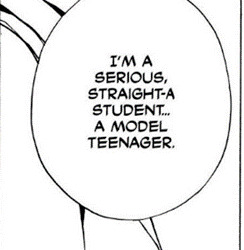
In A Guide to Screenwriting Success, Stephen Duncan refers to them as the character who drives the story forward, who makes the key decisions that affect the plot, often being the one who faces the most obstacles. The OSU College of Liberal Arts says they are the character whose fate matters the most, and usually the emotional heart of the narrative.
There are many definitions one can find online about what a protagonist is, the most oversimplified ones defining the protagonist under the same veil as the hero. But most of us here know that isn’t quite how it works. Still, even though we might be used to anti-hero protagonists by now (Deadpool, Saitama, Dr. House to name a few…) straight-up villain protagonists are rarer to come by, and, most specially, they usually don’t come by in the form of a teenager--or look anything like the guy in the picture above-- which is perhaps the main thing that makes Light stand out in a sea of manga MC’s and remain culturally relevant.
Light is a blueprint of his kind, becoming the point of comparison for other animanga protagonists that fall through a moral decline. To showcase how Light differs from even his own architype, I’m going to be taking three of some of the most famous examples in media and intermittently compare them to Light Yagami in this analysis: Macbeth from Shakespeare’s Macbeth, Rodion Raskolnikov from Fyodor Dostoevsky’s Crime and Punishment and Star War’s Anakin Skywalker.
Light and expectations:
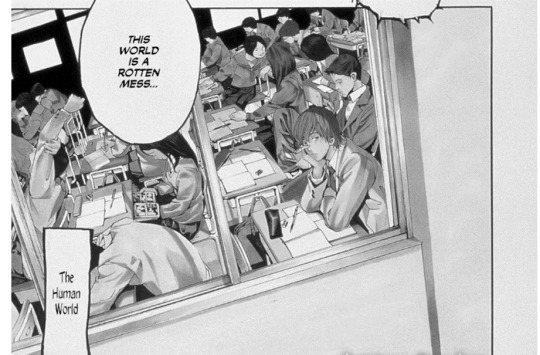
As we had seen in my previous post, we begin the story with a schoolboy disconnected from his immediate surroundings, his whole posture and expression reflecting the “boredom” that it’s the title of this chapter. His status as protagonist highlighted by the fact that he’s the only one looking directly at us. While all his classmates distract themselves with things inside the classroom (their friends, their books, their phones, or simply sleeping) Light gazes out the window, almost as if hoping that something external will offer more intrigue than the monotony of his current situation.
And he gets his wish! A notebook falls from the sky. We know what happens next. Light picks it up, as it is the only thing that’s interrupted his ennui. He’s initially unimpressed by it, although he commends whoever did it for at least committing to the bit.
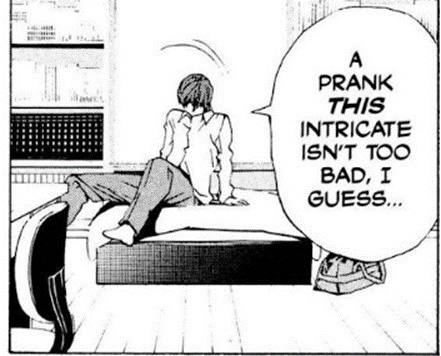
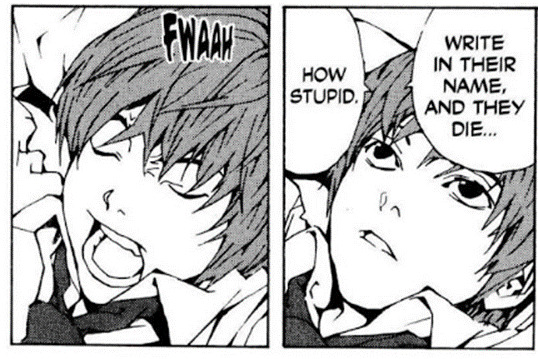
Ohba doesn't reveal the true outcome of the event right away. Instead, he makes us wait, fast-forwarding five days before slowly unfolding the details. This deliberate withholding of information is a recurring technique throughout Death Note, fueling the tension and intrigue that characterizes the manga, leaving us eager to piece the puzzle together.
But the next set of panels is what I want us to take a closer look at this chapter:
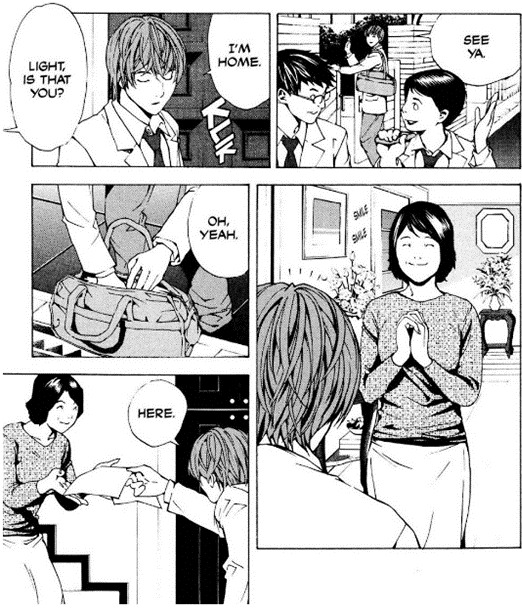
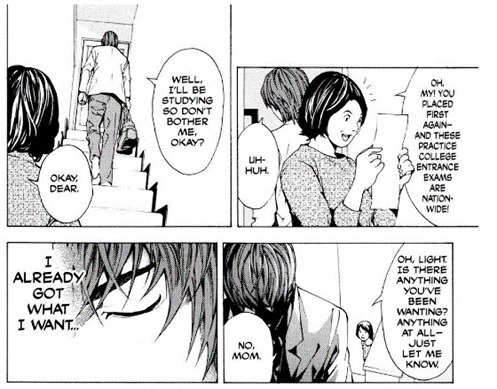
If you know anything about Japanese culture, you’re probably aware of the immense importance that academic success has on a japanese student’s life. To give some context to what’s happening here, I’ll quote Independent researcher Steve Bossy on his report Academic Pressure and Impact on Japanese Studies from 2000:
“In 1872, the Meiji government introduced a public educational system that made higher education accessible to anyone who was intelligent enough to qualify. (…) The entrance examination became the sole instrument by which all students were measured. Tokyo University became the pinnacle of academic achievement and the gateway to future success. Only the most intelligent students were admitted and upon graduation were rewarded with the best jobs. (…) The university entrance examination is the gatekeeper that provides access to and ultimately determines students' future success and status. The university that a student attends is most often the sole criterion that employers consider in their decision to hire a potential candidate.”
It’s no wonder, then, that Light’s mom has been eagerly waiting for his results on the practice exam for this life-determining test. Although we have to take into account, Sachiko says he has placed first again, so his parents are pretty used to his academic success, and Sachiko was just eager for confirmation on her son’s competence. Light is so used to this by now he does not demonstrate any pride or enthusiasm about having placed first nationally on the practice test for what is arguably the most important exam of his life. Perhaps he might have, were it not for the much more significant matter occupying his mind at the moment, though I doubt it. As we’ve already firmly established: Light is bored.
So, we have already identified one expectation Light has: he is presumed to excel academically. By Japanese society standards, this is a promise his parents see of his successful future.
This is then reinforced by what his cram schoolteacher is shown to say in the flash-back: Light wasn’t just Japan’s number one in that sole mock test, he is already Japan’s number one student.
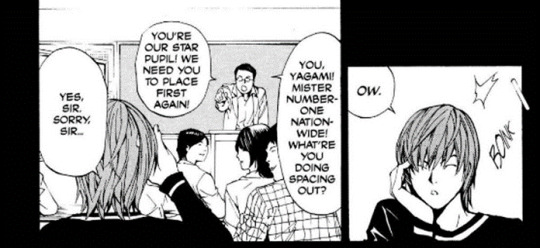
We can then add a new expectation:
Light is expected to keep his place as top nation-wide student and elevate the standing of the schools he attends.
Light doesn’t seem to find this to be such a difficult task though, considering the nonchalant way he brings the results to his mother. He is assured to attend the most prestigious university of the country, so then why, we may ask, does he even attend a prep school in the first place?
We can find the answer here:
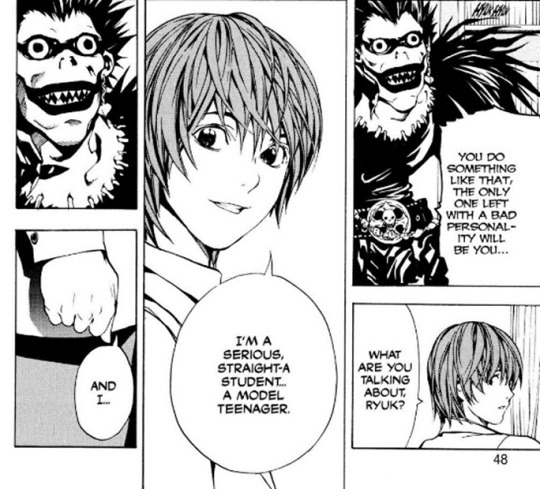
In Japan, it is common for students to attend supplementary classes due to the intense competition within the education system and the critical significance of the entrance exam. So even top students like Light would be expected to attend these types of schools to give themselves an edge. Or as Light puts it: Serious, straight-A, model teenagers. This is who Light is—what he expects of himself and what everyone else expects of him: to embody the ideal of what a Japanese boy should be, to serve as a model others look up to, the standard by which they should shape themselves. Academically focused, respectful of authority, socially responsible, and attuned to societal norms.
Light’s resignation:
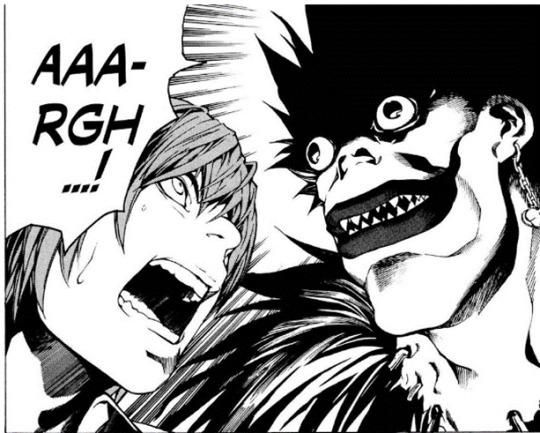
Now that we have established who Light Yagami is, let’s examine more of his initial thought process when presented with the seemingly impossible reality that the random notebook that fell from the sky is, in fact, a supernatural murder weapon.
As previously noted, we don’t immediately learn about Light’s reaction to his discovery. Instead we meet him again after he’s had five days to process his experience. Then Ryuk, whom we’ve already met, shows his rather unpleasant face to an unexpecting Light, and scares the pants out of the boy.
Or so it seems.
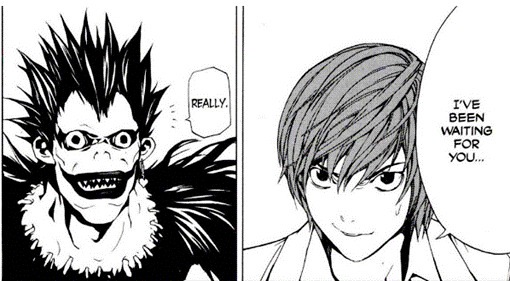
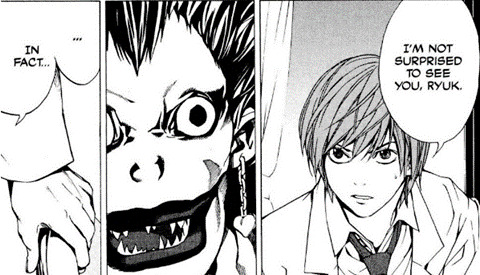
Despite the initial scare, Light has had the foresight to attribute the notebook to a Shinigami, and supposedly had been waiting for them to show up. Light, at this point, had fully accepted the supernatural explanation, and braved with a resolved face whatever consequence it might bring.
But how did Light recognize the connection to a Shinigami, and what does that mean in Japanese culture? The evolution of the concept of death is a fascinating subject, and while I recommend further reading on the topic (such as this article), to summarize: Shinigami are said to be the Japanese Grim Reaper, a relatively recent addition to their folklore, much as the Grim Reaper is for the West, and it was produced as a result of the increased interaction of these two cultures. A difference is that, traditionally, they are less seen as harvesters of souls but as creatures who ensure the smooth running of the cycle of life, performing their duty without malice and remaining morally neutral.
The Shinigami in Death Note are a fusion of these traditional Japanese beliefs and Western, particularly Christian, cautionary tales. This blending of cultural influences is a prominent theme throughout the manga (and anime), which I will explore in more detail in future entries.
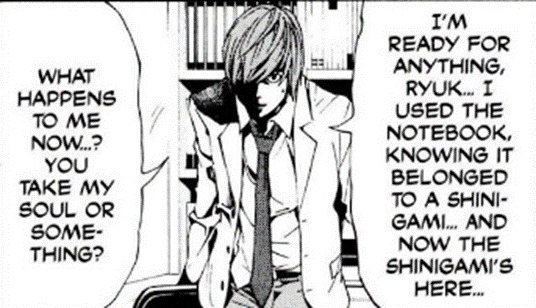
But let’s go back to our protagonist. While both the Western Grim Reaper and the Shinigami ultimately bring death, Light doesn’t seem daunted by this prospect. This raises an important question: Did he have a plan to convince a literal god like Ryuk to spare him, or was he content with having made a difference, however brief? As Ryuk points out:
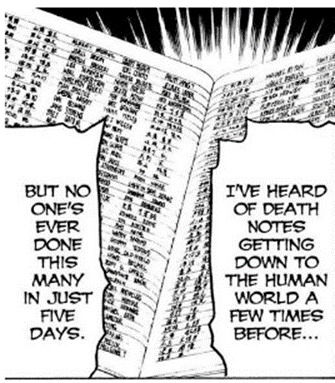
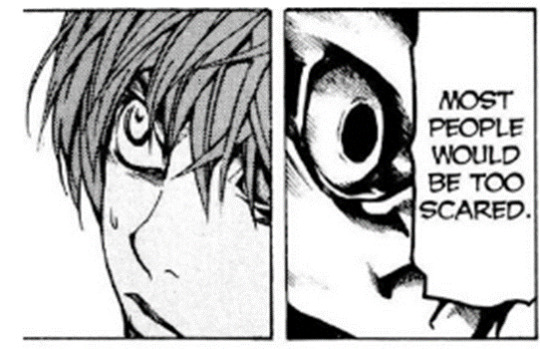
Ryuk, a timeless entity for all we know, singles Light out among what could be centuries of Death Note users. This continues to drive the point for the audience of Light being an extraordinary individual, now not just by his intelligence, but by his adamant determination.
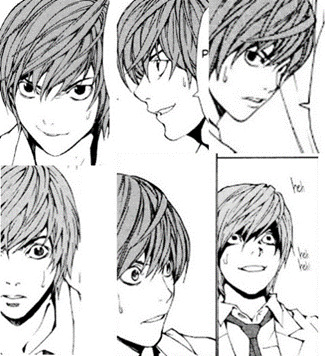
However, Light’s apparent perfect composure in this scene is not entirely genuine. He is sweating profusely through this whole interaction--something that we will rarely see from him in the rest of the story. It makes sense, for its his life at stake here. But it gives us an insight into Light’s ability to suppress his natural human emotions in favor of retaining a sense of dominance and control. At this point, Light really cannot have any idea of what awaits him, or how to bargain with a being like Ryuk, yet he is intent on directing the exchange in his own terms. He even has a prepared Q&A:
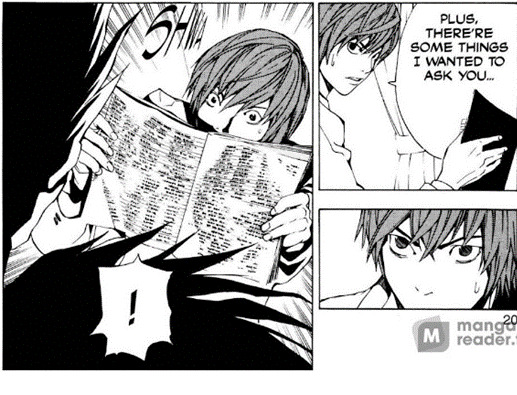
I know the dramatic way in which Light swooshes open the notebook is sort of hilarious, but upon re-read, it made me think further upon this display with Ryuk. We know Light thought it wasn’t chance but choice that made Ryuk give him the Death Note, so did he want to demonstrate his worthiness to the Shinigami? His fearlessness? Did he have a whole speech planned on why he should be allowed to keep using the Death Note? After all, we learn seconds later that he had already formed his long-term plan of ruling the world, so did he plan to offer his soul, in pure Faustian manner, for the chance to wield the Shinigami’s power?
In the end, Light learns that there is nothing he has to offer—no bargain to be made. Instead, the conditions of the Death Note say he will experience fear and torment (which he has already done), that Ryuk will write his name when he dies (which results in the same thing) and that he can go to neither heaven nor hell.
This last one could be considered the greatest sacrifice, upon first read. But it is also a pretty neutral consequence that doesn’t promise reward nor suffering. Of course, it isn’t until the final chapter that we learn it isn’t really a sacrifice, as every other human shares the same fate.

Hence Light’s ecstatic look.
There is then a subversion to Christian narratives by keeping Ryuk’s role neither malevolent nor benevolent. He does not actively tempt Light to keep using the notebook, and even gives him a way out by offering the option of giving it to another human if he doesn’t want it. He has no interest in convincing Light of anything. This is similar to the role of the three witches in Macbeth, who instigate the narrative by sharing a prophecy, but do not manipulate or coerce Macbeth into taking any specific action. However, a key difference in the start of this story and that of Macbeth’s is the idea of destiny. Ryuk mocks Light for believing himself special, in contrast to the witches assuring that Macbeth would be a King. Light's confidence in his potential to rule the world is entirely self-driven, rather than being shaped by prophecy or fate.
Light’s cognitive dissonance:
Ah, we’re finally at the pivotal moment of this first chapter. The moment that will define Light’s character for us moving forward.
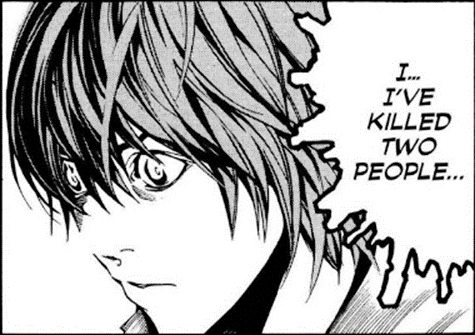
So finally, after Light’s interesting conversation with Ryuk we are thrown back into the flashback that explains how he came to write all those names. The events go as follows: Light was bored, so he decided to write a name on the strange thing he brought home-- just for the sake of it. Despite mostly believing the notebook to be a prank in bad taste, as a strategic thinker, he immediately envisions possible scenarios where it could be real and plans his actions accordingly. He even berates himself for this:
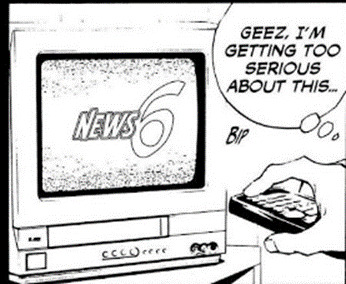
But of course, the Death Note works, exactly as the instructions said.
Up until this point, Light’s actions could be entirely written off as an accident. Kind of like a child shooting a gun because they can’t discern the danger of it. But the event is so monumental, so outside of normal bounds that Light’s young and curious mind cannot simply leave it be and risk another murder. He needs answers and he needs answers now.
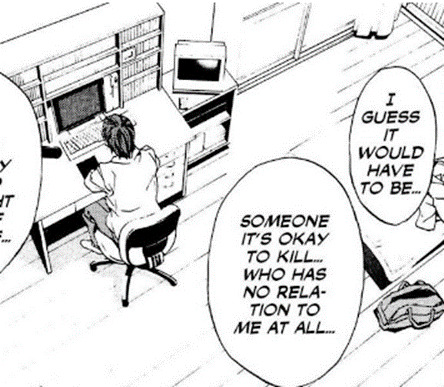
Light is fully aware that his actions are socially reprehensible, which would explain why he decides to continue acting by himself. Not to mention the ridicule, too, were he to hand the notebook to the police and it turned out to have been just a coincidence. And Light Yagami is not socially reprehensible and he is not ridiculous. But there is something else, too.
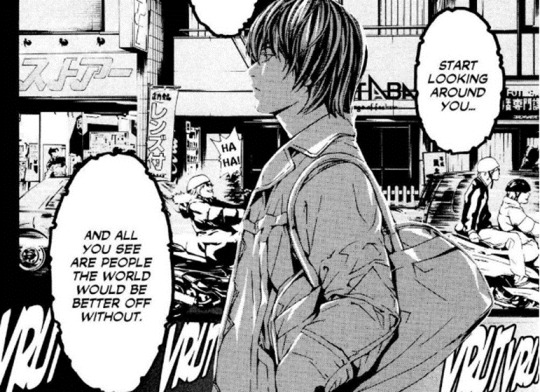
Light Yagami feels detached and high above the world.
It’s natural, as he literally is above his peers in at least the standard by which they are more strictly measured. In a culture where academic achievement is synonymous with social value, Light’s intellectual superiority is reinforced by his position as the model student, but he is also a 17-year-old with a skewed sense of long-term consequences and proportionality, reacting with his amygdala to his immediate environment instead of keeping on with the cool rationality he believes himself to possess. An example of this is when he considers killing one of his fellow classmates for bullying and coercion. A rather minor offense when compared to the criminals Kira would first execute, and directly contradicting the first precaution he’d already thought for himself: to not kill anyone directly associated with him.
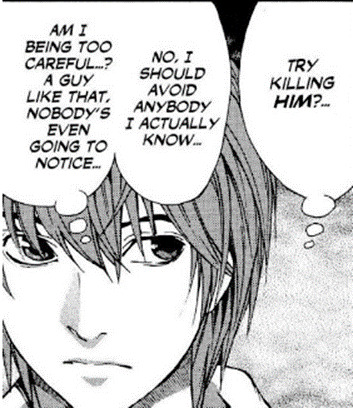
But then he conveniently finds a perfect target, another one that he can justify to himself in the context of preventing a heinous crime.
When the Death Note works once again, it finally confirms Light as a murderer, and this is when the cognitive dissonance takes place.
In psychology, cognitive dissonance is a mental conflict that occurs when your beliefs don’t line up with your actions. This discomfort motivates individuals to reduce the inconsistency, usually by changing their believes, justifying their actions, or minimizing their importance.
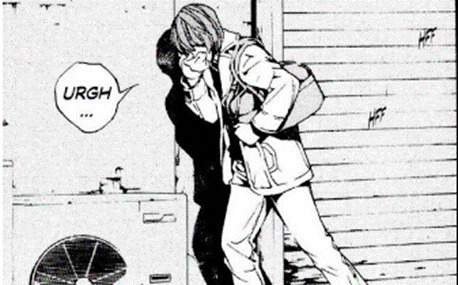
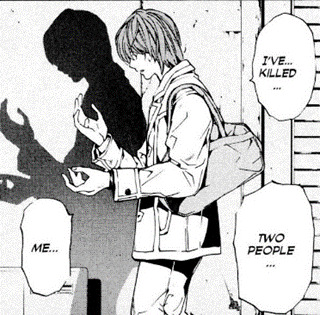
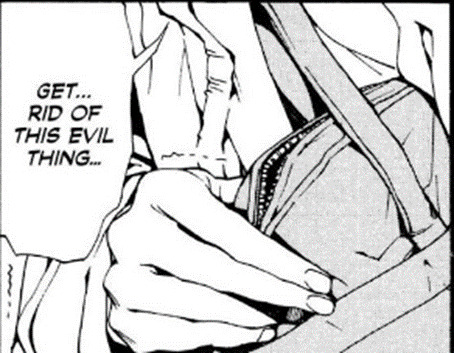
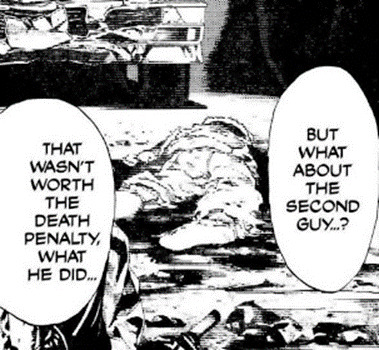
Light’s cognitive dissonance almost makes him wretch, makes him question himself and consider throwing away the Death Note, which he refers to as an ‘evil thing’.
But he begins to resolve this dissonance by reframing his believes in order to justify the new image of himself as a murderer. Light’s inner conflict plays out over at least a day, during which his conscious mental battle is not whether what he did was justified, but whether or not he will be able to take on the role that would justify it.
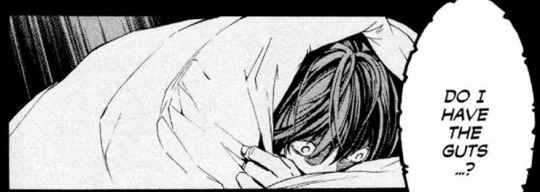
In the end, if he doesn’t take the role of a vigilante, he would have to face the breaking of his self-schema as a moral and upstanding citizen. But the decision to continue killing would also transform him into something else. This conflict between morality and identity is so strong those first few days, that Light admits to having persistent nightmares and loses 10 pounds in 5 days. But ultimarely, the dissonance is resolved with a perfect, if delusional and self-aggrandizing, moral justification: Not only is it right to become the world’s judge and executioner, but he is the only one capable of doing so.
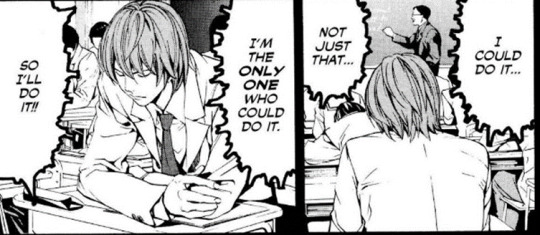
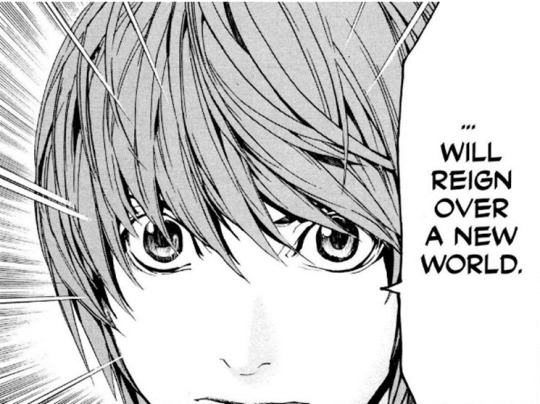
An extraordinary cognitive re-structuring and self-deception in a relatively short amount of time. But then again, we have already reiterated throughout this meta that Light is not an ordinary individual.
And who better, honestly, to carry us through this particular story? What are the limits of these character’s self-justification? What are the consequences of a God’s power in the hands of a mere human? And what happens when a brilliant mind has to contest with a teenager’s inflated ego?
I wasn’t expecting to have this much to say about the first chapter, I’m looking at the page count of this document with a bit of terror, honestly, but it just goes to show how strongly Death Note manages to establish its main themes from its opening and all the questions it leaves the reader with, inviting us to take part of this unconventional psychological thriller.
If you read up until this point kudos to you and I hope you enjoyed my brain’s rambling, I would love to hear your thoughts and feedback. I don’t know if next entries are going to be this long, but I am enjoying finding new things to ponder about this series, that I hadn’t even thought about after 5 years of being a fan!
Next entry! Chapter 2: L. Lilith’s Breakdown
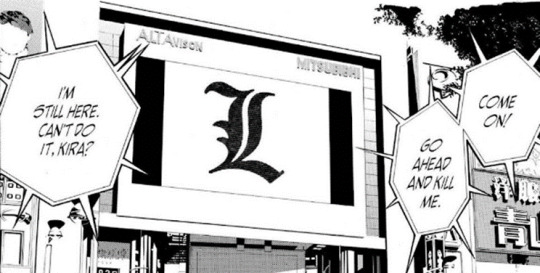
Previous entry: Chapter 1: Boredom. Lilith’s Breakdown. Part 1
52 notes
·
View notes
Text
Fluthlu. Nrub’yiiglith. Oglogoth. ELDRITCH JASPERS
(page 1149-1153; ‘[S]: Enter.’)









[note: I finally gave up on taking screenshots direct from flash. everything in this post comes from this youtube mirror]
I’ve watched this a few times now and it is still near impossible to react to. It is so much all at once, it’s even faster paced than a movie trailer but it has the emotional impact of a full movie because of everything that’s come before it. I want another week off just to watch this over and over and process it because it is hard to do justice to such a visual/auditory experience in words.
This flash incorporates most of page 137 (the Sburb installation), and that flash was also timed perfectly to fit the music – so it had to be the same song to make it work. But this page takes it further, because when miniature panels move onto the screen and displace each other, it’s also perfectly in sync. Is this what dance choreography is like?
The fire motif is present right from the loading screen, and Rose’s house is burning all the way through. I think this is why I don’t entirely click with the kids having elemental affiliations – fire/meteors are seen more generally, and affect everyone (even WV when his bunker takes flight!) so I see that as important overall, not just for one specific character.


Rose
Rose has the most going on here and is really the central character of the flash, so I’ll talk about her first and finish up with a little on each of the other three kids. The meteors over her Sburb title screen make the game look scarier this time around – but in a way it’s less scary, because at least people know what they’re doing, evidenced by how quickly and efficiently her entry almost went.
Dave throwing Rose’s bed into the fire is just like when Rose threw John’s tent into the void (p.616). There’s this very unsettling idea that the kids aren’t allowed to take a moment to rest, which will definitely come into conflict with the importance of dreams.
Jaspers being prototyped manages to be a big dramatic moment even though he has such a goofy, simple cat face, which is really impressive.
Zazzerpan breaks, just as we saw in the future on pages 715 and 757, and it’s hard to make sense of in the chaos of the flash. But as I understand it – Dave uses him to smash open the cruxtruder, then drops him outside, where his hand and orb fall off. Pillars of lightning and fire strike, and that or his wizard magic toss him back into the air. The orb hand flies, knocking Rose’s entry item off the stupidly and precariously placed alchemiter (at which point Dave is already reaching for the Eldritch Princess Doll for Tier 2 Prototyping – whose idea was this?) The bottle flies into the waterfall, and Rose knows it’ll be carried by the current. She gets a devious, calculating look and leaps after it. She catches it, and would fall to her death (?) if she wasn’t rescued by Eldritch Jaspers’ long stretchy knitted arms pulling her back to the house.
If Rose is scared here, she doesn’t show it. She has the true mad scientist ethos of being willing to do whatever it takes no matter how dangerous. And a zoologically dubious cat is the PERFECT pet/mad scientist lab assistant for her, just like OG Jaspers and Vodka Mutini might’ve been Mom’s lab assistants.

Rose’s pre-punched card being a bottle is another obvious link to Mom, who hasn’t been seen since ‘WV: Ascend’. Just like John, Rose’s card doesn’t only produce the item (bottle, apple), but also Something That Provides The Item (liquor cabinet, tree). The item is the same color and texture as the cruxite that produces it, and these special entry items work differently to all other alchemy.
I did some research on symbolism of bottles – apparently in the Bible they can symbolize preservation or fragility, and in other contexts they can symbolize the womb or confinement. There’s also the ‘message in a bottle’ idea that feels relevant since this one almost got thrown out to sea. The bottle needs to be broken for Rose to enter – or specifically, uncorked, as WV’s command station turns out to be the cork in a larger bottle buried in the ruins of Rose’s house. Uncorking (or smashing) a bottle, just like biting an apple, can’t be undone. Entering the Medium is a one way street, something is destroyed and permanently changed in the process.
Both entry items relate to food, as does the third one we know of – the ‘eggy lokin thign [sic]’ (p.240) – though as they’re all made of cruxite, they might not be edible. Rose’s bottle comes from a liquor cabinet, already a major feature of her house, and John’s apple comes from a tree, and he, too, has a tree in his yard – these things come to the Medium with them. I think as part of Sburb indexing a player’s house for the server player, transportation to the Medium, and provide options for alchemy, it also chooses an entry item tailored to the specific player, and the shared meaning of the items will become clearer when we have all four.
Rose waits until the last possible moment to smash the bottle, just like John with the apple. Unlike with John, there’s a moment where we can see Rose’s house flicker and vanish with the meteor BARELY above it, as though the whole thing was being selected with the cursor, plucked from its foundations and dragged somewhere else.


Dave
Character development moment: Dave drinks the apple juice from his closet and it isn’t piss. He also draws Sweet Bro and Hella Jeff with a mouse, and while he’s still trying to make it bad on purpose – setting the quality slider to 0 – it’s hard to draw anything recognizable with a mouse. I know that making intentionally ‘bad’ art is its own skill, but I have a lot of questions about what Dave’s ‘good’ visual art would look like, what medium he would use, and if he actually knows what he’s capable of in practice or if he’s too scared of that kind of vulnerability.
Dave gets attacked by crows mid-flash as they all burst through the gaffa taped window hole, and I think this has something to do with the beta discs. They were first stolen by a crow, which died for its efforts, and more and more crows have been circling since. And here on the same page that we see the discs appear somewhere else, the crows attack. A DISTACTION, perhaps, while something else scoops up the discs? If the OG crow turns out to want the discs for something more than just being rambunctious it will be the biggest plot twist in Homestuck.


Jade
Jade doesn’t do much! She lass scampers into the mystic ruins and takes the elevator, and I like that she suddenly looks scared when confronted with the lotus flower and countdown. She’s never seen this in a vision and doesn’t know what to do with it, and maybe for a moment – before she falls asleep – she regrets her decision to come in here. The flower opens to reveal the same white, glowing spirograph that Bec was guarding billions of years ago (p.1073), the one that the ruins possibly sprung up to protect. And when the timer ends, the spirograph drops Dave’s juice-stained beta discs, as stolen by a RAMBUNCTIOUS CROW on April 13, 2009 (p.353).
If Jade is a pawn in Skaia’s grand plan, then she does need to access the Medium – and apparently, she needs to access it while awake, not just in dreams. But the timer in Rose’s lab could have been counting for up to 10,000 years, while the mystic ruins timer could be up to 10 billion years, and the furthest we’ve seen something appearified or sendificated is a few hundred years. Setting up a time loop to the earliest days of Earth is a whole different level. Did Bec know exactly what he was guarding, or did he just know it was important? And is there anything – beyond the general importance of time loops to the story – that makes this specific pair of discs special, meaning Jade has to have these, not another set?


John
Nanna writes her note in John’s new Colonel Sassacre’s (first seen on p.759) with glowing blue text eye beams, and intentionally drops it into the void below. I originally thought the message was from pre-death Nanna as the text was black, but apparently it’s just aged. Which means that Nanna didn’t necessarily know anything about Sburb before she was prototyped, and everything could come from her NPC programming. But more importantly, this proves that the new Sassacre’s from John’s magic chest (p.8) and the aged Sassacre’s from Dad’s safe (p.542) are the same book in an extended timeloop, and from now on I’m assuming that whenever we see two of the same item, it’s the same item traveling through time. Bro’s shades + Dave’s original shades are a possibility.
We get a brief glimpse of a shimmering blue land with pockets of light below gray clouds – perhaps ‘the place where the constellations dance beneath the clouds’ where John’s ‘true work may begin’ (p.895). It looks both luminous and ominous, positioned as it is between those two planets. And seeing John’s house zoom out on pages 1150-1152 – an extension of the zoom out on page 250, where we first saw John’s house alone in the void – I’m reminded of the Wayward Vagabond’s planets on page 703. The one on the right has gray clouds too, although black instead of dark blue, so hard to say for definite.
John fights better in a suit!! I genuinely believe this – he designed an outfit for himself, and it was something that made him feel cool and mature and important, and that’s just as crucial to winning a fight as all his new weapons. And the gate is very magic portal the way it glows all around him and holds him suspended in mid air. That’s two out of three acts that have ended with John getting portaled to another location.


Final thoughts
I honestly could go on forever. While I’m obsessed with this flash, it feels more like a huge moment of change in the story than tying up throughlines of Act 3. The ‘Dear X…’ notes do get tied up here, but the other recurring ideas have been gifts/presents/the mail, the trolls and their impact on the kids’ lives, and Jade’s island/the mystic ruins as a focal point. We do see inside the mystic ruins, but in a way that only creates more mysteries, not providing closure or new information.
Instead, this flash massively advances the story, taking us through Rose’s entire process of entering the Medium and having her sprite prototyped twice, and giving Jade the Sburb discs – something that was a major quest for both John and Dave, but just happens here. Rose’s ‘Let’s make shit take place.’ (p.1148) meant way more than just starting the game – Act 4 is going to be very different now that these huge changes have happened, there are zero known barriers to Dave entering the game, and if John is going down to the sparkly blue planet it’s believable that all four of them could be in the Medium by EOA4. The possibilities feel wide open in an absolutely thrilling way.
Surely Act 4 will happen immediately, and not be interrupted by any---
#homestuck#reaction#im still just screaming on infinite loop abt this whole flash#when taking screenshots especially i was like. This Is Rose's Flash. This Is Her Big Moment#like FINALLY. i would like more big moments for rose please <3#chrono
21 notes
·
View notes
Text
Dragon Ball Daima, episode 5. Time to meet the new girl for realsies.
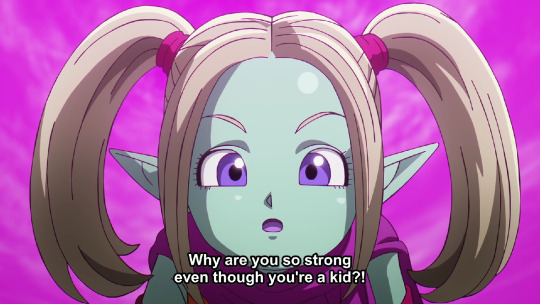
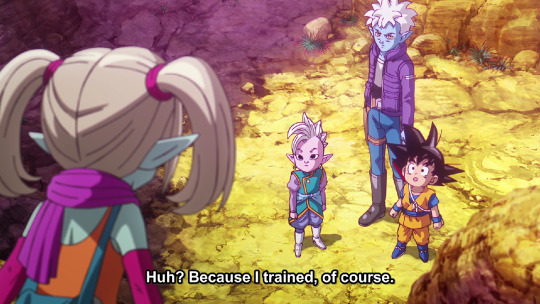
For like forty years.
Goku's leaving out information that's extremely relevant to the new girl's question. The reason he has the skills of a middle-aged martial arts master is because that is literally what he is.
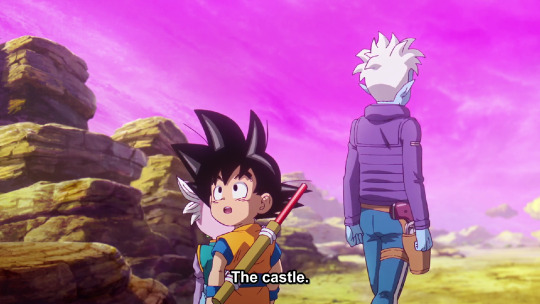
We're still going to the castle? I thought we turned around to go chase the Dragon Ball instead. Maybe I misunderstood.
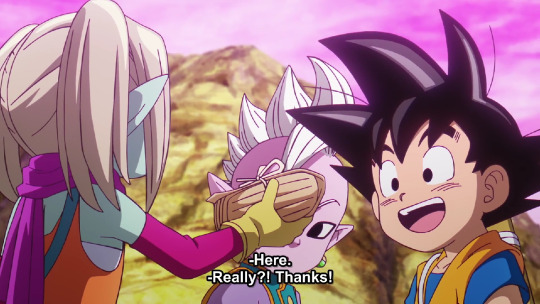
Gloom n' Doom was trying to leave her behind but we all know who the real star is, and he accepts bribes in exchange for friendship.
He also accepts friendship without bribes. He's just nice. But he's not gonna turn down some onigiri if you're offering.

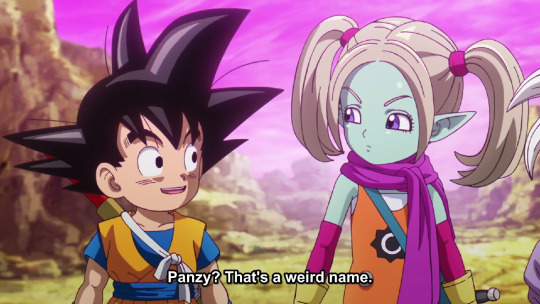
We have a name! Between Glorio and Panzy, it seems the denizens of Daimakai have flowers for their name pun theme.
(Goku, you named your son after rice. You have no room to talk.)
Not sure if the exchange over whose name is weirder is meant to be a parallel to Goku's first meeting with Bulma. Very rarely do the punny names get called out as funny in-universe.
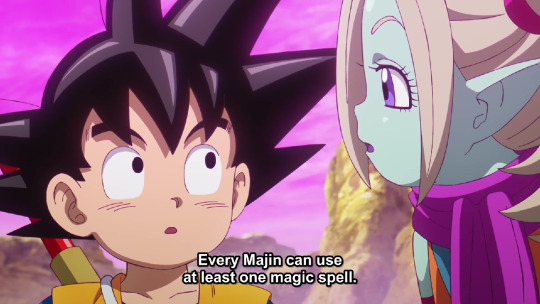
They're going the "Everyone has their own unique superpower" route for the Majin, I see. And Panzy's is....

Telekinesis.
We've seen telekinesis a few times. Chiaotzu and Guldo are the most prolific telekinetic characters. But they're also...
Like. They both kinda fall into the category of "Characters who got exactly one fight and then fucked off or died." We've never had a character who was important to the plot and had abilities centered around psychic powers.
I hope that's about to change but Dragon Ball is notoriously terrible with its female characters so I'm not taking anything for granted.
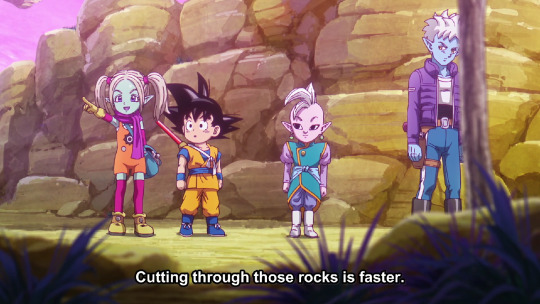
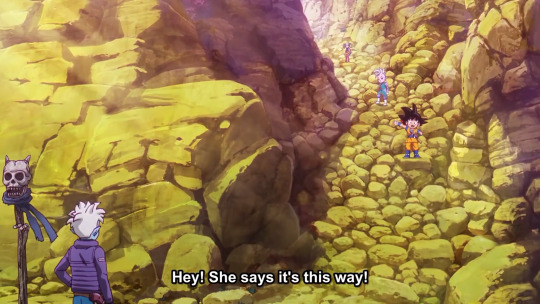
Panzy is completely ruining Glorio's vibe as our solemn guide to the demonic lands and he can die mad about it. XD

Weird thing to have a character say before cutting to a montage of everyone pleasantly sightseeing with no trouble whatsoever while happy fun-time music plays in the background.
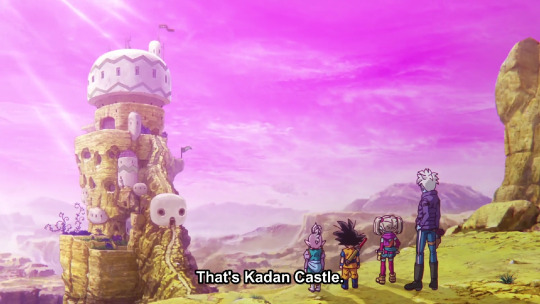
The front gate is HUNGRY OM NOM NOM NOM
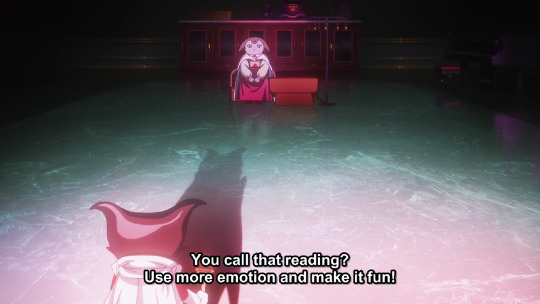
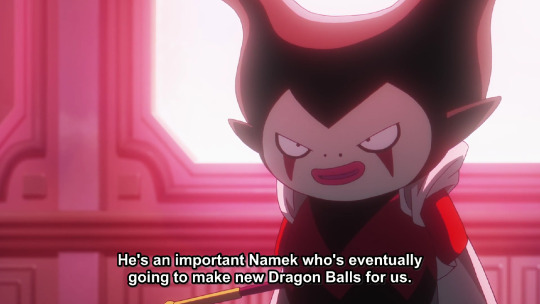
Is....
...is the plan to raise Baby Dende like an ordinary child over the course of many years so that he imprints on Gomah and comes to see this castle and its occupants as his home and family?
Is that what we're doing here?
(Wouldn't he still have his memories? Goku and the others do.)
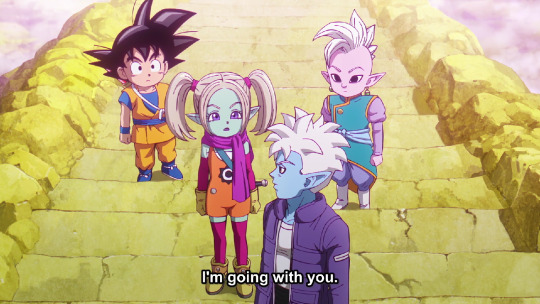

Oh, she is definitely like the king's daughter or something. There's a reason she happens to know the most convenient way to and from the castle. Glorio needs to learn how to read a room.

You know, I really thought they were gonna tease that out a bit longer.
She's got her own distinct style to her but she's definitely a bootleg copy of Bulma. Child genius female super-mechanic who attaches herself to Goku after seeing how powerful he is and happens to be the daughter of the most rich and powerful family in the region. There's visibly a lot of Bulma in her character DNA.
Even her logo on the front of her shirt often looks like a C because of the stuff covering it.
Which is kinda making me start to wonder if Glorio is a bootleg copy of Future Trunks. Grim and serious demeanor, showing up out of nowhere in a magical fantasy vehicle, leaning on a weapon but also being able to fight without it, that jacket... Huh.
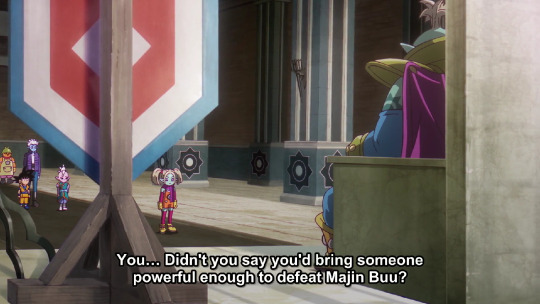
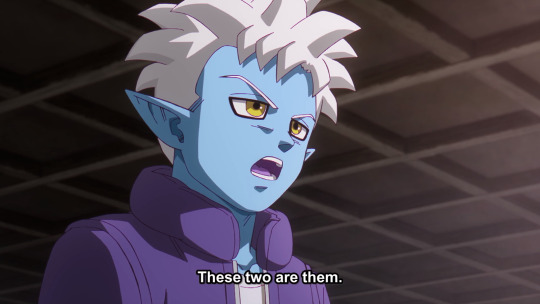
HAHAHA NO
Goku, sure, but Kaioshin is one whole Fuck No in the realm of fighting Majin Buu. It is thoroughly established that he'd be up shit creek without a paddle in a straight fight with Buu.
...
In fact, so is Goku. The only form of Buu that Goku has ever been a match for is Fat Buu. And that is strictly hypothetical, based on Goku's impression of Buu versus how strong Super Saiyan 3 is supposed to be..
Strictly hypothetically, his Super Saiyan 3 could waste Pure Buu too. We all saw how well that worked out.
"Wait but wasn't Goku holding back so Vegeta could have a turn?"
Common misconception but no. Vegeta accuses Goku of that, but Goku was sincerely giving Buu his all and getting wrecked. Super Saiyan 3 is the only form Goku has that can match Buu on paper, but Super Saiyan 3's drawbacks prevent it from being able to match Buu in practice.
So. Uh. No. There is not a single person in this room that can cash the check that Glorio's stupid mouth has written. Not counting sequel series that haven't taken place yet at this point in the timeline, the only time Goku has ever been on Buu's level was when he had Vegeta to fuse with.

Seems legit. I like the cut of his jib. We should definitely make him king.

He commodifies women as bargaining chips to be bought and sold by their fathers. I don't like the cut of his job. We should not make him king.

Goku proving himself by fighting all the royal guards at once is a fun fight, well animated, and nicely paced. But I particularly enjoyed this moment.
Goku transforming to Super Saiyan not to actually go Super Saiyan but just to use the burst of ki that comes from it as a radial attack to blow the goons away. Weaponizing the power-up itself.
Some real "Shazam hits his opponent with the transformation lightning bolt" energy going on here.

...
I legit thought this guy was going to, like, reveal some sort of power that lets him teleport directly to Earth and then bring back Vegeta, Bulma, and Piccolo in a snap.

I'm looking forward to having Panzy on the team. Especially when Bulma gets here. I can't wait for Bulma to meet Discount Bulma.
27 notes
·
View notes
Note
People don’t like Jisu because Aslfua spends a great portion of the story of CheMiae slowly building their relationship from the ground up again and slowly getting to the romance part. I guess people find it annoying since for the past few weeks the plot really hasn’t been moving at all and it seems like we’re going 1 step forward and 2 steps back 🤔 and it seems to be an idea in the fandom that he’s just being used to push CheolMiae together and it is kinda true imo.
From your posts you seem like a Jisu fan and probably ship him with her (correct me if I’m wrong) so to you seeing a character you like being prominently featured these last episodes is a treat to you. Jinseop is mine so I like it when he’s in the episodes. I don’t have much of an opinion on Jisu I’ll probably think of him differently once the story ends.
Some people are harsh on him I’ll say that but imo I just think it’s best to wait it out and see how things play out. Also some people being rude because of a difference in opinion is weird. Hope you don’t receive too many rude anons !!
I can understand where you're coming from, even if I personally see it differently. For me, the first part of the series was about Miae and Cheol becoming friends by Cheol learning how to open up to people. And it also included many subplots about other characters learning about themselves and choosing to get out of their comfort zone, like Johan, Jinseop or Song-I. When the actual romantic development started, it was when Jisu was introduced. So I didn't think he had no place in the narrative because he was foreshadowed way before that. I've seen people claiming how they wanted a similar dynamic between Jisu and Cheol as in Cheese in the Trap's mls, but I don't believe they are comparable. In citt, Jung was the intersection of all the subplots - he had a personal connection in the past with Inho and his mystery was what started the story in the present for Seol. In aslfua we have Miae as the center, and her memories with Jisu and Cheol drive the story forward. And just like in citt, her memories were limited at the start. She didn't remember Cheol, but as she gradually regained her childhood memories through dreams and coincidences, she was able to make a connection with him in the present. Jisu's pov is even more limited because Miae's memories about him are still incomplete. In this series, foreshadowing plays an important role. Even Miae and Cheol's childhood interactions gained meaning in future chapters, or the same goes for little details like the eraser pieces under Miae's window, the running gag about Miae's haircuts that led her to Jisu's mom, the constant ominous stormy weather that appears when Miae and Cheol's relationship is changing significantly, etc. The fact that Miae has no idea about Jisu's prior appearances in the story is definitely no coincidence, either.
Let me get something clear - I'm not a shipper. I don't even like this word btw. Me choosing to write about Jisu as a potential love interest was based on my observations about the story. I've repeatedly emphasized that I have no way to know the ending of the story and the intention of the author. I'm writing about possibilities and details in the narrative that might be relevant in the future. That being said, I love Jisu as a character and I do believe Soonkki has done a great job with creating a limited perspective-narration. It's definitely not easy to do because if an author drops too many hints, the suspense gets easily broken. But if there's not enough small detail, the plot progression becomes messy. Soonkki gave enough hints about Jisu for us to guess about his character and most of these predictions became true, like him being the number1 student, Miae's childhood classmate, etc. In this series, I don't have a character I dislike so much that could make me uninterested in their personal development. I also understand this might not be the case for people who are very serious about Cheol and Miae ending up together. It's been a long time since I was 14 so I cannot help but talk about these characters as kids and that's why I wouldn't be shaken if they didn't end up together, just to make this clear. These episodes, while might feel repetitive, have already established key problems in Miae's way of thinking and her relationship with Cheol. While Jisu is not the kindest person in the story, his remarks are not too far from the truth. Miae truly has to have a talk with her friends and Cheol about what she even wants, because I'm not sure she knows it. She expects Cheol to take care of her problems, but right now he cannot do that for her. Cheol shouldn't openly be angry at Miae for being friends with Jisu because she did nothing wrong. Jisu should be more mindful of his words and actions. All of them are wrong in different things, but Jisu is important in Miae's growth story. Miae was called out by the narrative when she wanted to interrupt the confession, she even felt ashamed when she talked to that girl face-to-face. Which makes me believe Cheol's behaviour will also be addressed otherwise we would have very weird double-standards in the story.
I agree with you that everybody should wait to see where the story is going instead of harassing other people. I'm seriously tired of rude asks when all I do is write on my blog about possiblities that might not even come true. It seriously led me to only read the latest episodes out of obligation, even if there were many interesting things in the latest one on Naver. Thank you, I hope as well!
22 notes
·
View notes
Text
Why Bisexual Jon Snow Could Work /srs
Jon Snow is bisexual and here's why.
Aight, I'm aware the queer rep in asoiaf is pretty eh for the most part. Sweets is cool, and Loras and Renly have a nice implied relationship but Dany and Cersei having gay sex scenes felt way more fetishized than actually meaningful representation, especially since neither character considers a romance with a woman. Because of this, I'm gonna say that while I think this could be a valid direction to take the story, I'm like 50% sure that GRRM won't write it. Then again, it's been so long between books that times have literally changed and FnB seemed to have a ton of queer relationships so who knows.
Ok, ok, so I've laundered my argument; we all know why we're really here. Jon Snow could be bisexual and that could be really important for the story. Why?
First and most obvious is that it's another parallel with Dany. Jon and Dany have had storylines that directly mirror each other, especially in books 3 and 5. Dany is confirmed bisexual by the narrative, since she has regular sex with her handmaiden Irri, although because of her position of power over her, she tries to limit them. And, as already mentioned, she never gets to be romantically attracted to a woman. Maybe that's coming in future novels, who knows, but all that to say Dany and Jon mirroring each other on the bi front is not inconceivable, especially when you consider that there is already evidence for Jon being bi.
I'm sure most of you deep into this discourse(?) have probably predicted that I'm going to talk about Satin. And if this story does go in the 'Irri' direction, Satin is definitely the candidate for Jon's male love interest. He's a former prostitute from Oldtown, which mirrors another of Dany's handmaids (Doreah I think) and he's Jon's steward, like Irri is to Dany. Other characters also seem to think that Satin has kinda slept his way up the ranks to being Jon's steward, confirming at least that this idea is in GRRM's head. I wanna take a look at a few scenes and see how they could imply a future relationship between Jon and Satin. Take a look at this fight scene between Jaime and Brienne (I promise this is relevant.)
"'Give me the sword, Kingslayer.'
'Oh I will.' He sprang to his feet and drove at her, the longsword alive in his hands. Brienne jumped back, parrying, but he followed, pressing the attack. No sooner did she turn one cut than the next was upon her. The swords kissed and sprang apart and kissed again. Jaime's blood was singing...
...The dance went on. He pinned her against an oak, cursed as she slipped away, followed her through a shallow brook half choked with fallen leaves. Steel rang, steel sang, steel screamed and sparked and scraped, and the woman was grunting like a sow at every crash, yet somehow he could not reach her."
To me this scene has always read as implicitly foreshadowing Brienne and Jaime's future romance. Words like "kissed" or "grunted" or "pinned her against a tree" feel implicitly romantic/sexual, even the way the scene is described as a "dance." Jaime even says at a later point "Might I have this dance my lady" to mock her. Of course there is plenty more in the story as a whole that foreshadows Brienne and Jaime having a relationship, but I use this as an example because I want to point out how GRRM sometimes writes a fight scene as romantic and sexual foreshadowing, or at least that can be how some scenes are interpreted. Now I want to look at the scene where Jon trains Satin.
"It's too heavy," the Oldtown boy complained.
"It's as heavy as it needs to be to stop a sword," Jon said. "Now get it up." He stepped forward, slashing. Satin jerked the shield up in time to catch the sword on its rim, and swung his own blade at Jon's ribs. "Good," Jon said, when he felt the impact on his own shield. "That was good. But you need to put your body into it. Get your weight behind the steel and you'll do more damage than with arm strength alone. Come, try it again, drive at me, but keep the shield up or I'll ring your head like a bell . . ."
This scene reads similarly to me. Words like "jerked," "rim," "get it up," even the one word sentence "Come," can read as sexual foreshadowing in a similar way to Jaime and Brienne if you are given context that Jon and Satin do end up together. In particular, "ring your head like a bell" reminds me of a scene where Gendry gets approached by a girl but rejects her advances.
"I'm named Bella," the girl told Gendry. "For the battle. I bet I could ring your bell, too. You want to?"
I would be remised if I didn't mention that Jon calls Satin pretty three times in the chapter where he's supposed to be engaged in a battle with the wildlings. Like yeah, that's a bit weird, why are you thinking about that now Jon. Or I could mention the fact that he described Satin’s voice swearing his words as being like song and that he could smell the fresh sweet oils Satin rubbed into his beard. Jon… buddy you got something you wanna say? I’m joking of course: you don't have to be queer to recognize another man's beauty. What I think puts this into perspective is if you compare this to how he describes Val, someone who it's generally agreed upon that he takes an interest in.
Here's a quote where Jon describes Satin:
"The boy claimed to be eighteen, older than Jon, but he was green as summer grass for all that. Satin, they called him, even in the wool and mail and boiled leather of the Night's Watch; the name he'd gotten in the brothel where he'd been born and raised. He was pretty as a girl with his dark eyes, soft skin, and raven's ringlets. Half a year at Castle Black had toughened up his hands, however, and Noye said he was passable with a crossbow."
Now here's Val:
"Val stood on the tower roof, gazing up at the Wall. Stannis kept her closely penned in rooms above his own, but he did allow her to walk the battlements for exercise. She looks lonely, Jon thought. Lonely, and lovely. Ygritte had been pretty in her own way, with her red hair kissed by fire, but it was her smile that made her face come alive. Val did not need to smile; she would have turned men's heads in any court in the wide world."
I mean, the fact that "pretty" is a word used to describe both Ygritte and Satin is a connection that I shouldn't need to point out the significance of, but I digress. If you actually compare these quotes, both look like neutral descriptions of someone's appearance in isolation, however in context, you have to ask why the author shows you this stuff. Why does Jon comment on how good looking both of these characters are so often? It doesn't seem like there would be any other purpose to these, again, repeated descriptions of both Val and Satin other than to highlight that the fact that Jon finds both of them attractive is important.
Again, none of this proves anything outright. I mention this because this is the sort of thing where if you reread the books with this lens, suddenly more things start to jump out at you, and it can read like obvious foreshadowing you missed. Like when Catelyn sees her reflection in some armor and comments on how "drowned" she looks. It doesn't mean too much on a first read, but when you know what happens to her, it's some clever foreshadowing.
Another big reason I think Jon getting with Satin might be important is that you can see it as a pivotal part of Jon's character arc, specifically Jon's sexual awakening storyline. When Jon first has sex with Ygritte, she's the one who initiates the interaction. In fact she has been doing that the whole time he's had her hostage, teasing him with advances and mocking him for his inexperience. In the famous cave scene, Jon's thoughts are how he wants to bang her, but also about how it would be in conflict with his vows. That's the main reason he never has sex with her until she incites it on her own; it's not because he doesn't want to. It's because he thinks it would violate the words he swore at the weirwood.
So Ygritte begins this part of his arc, and Jon discovers that he likes having sex, how original. But he still feels reservations about it, during the act and afterwards. After all, his people resent him for being able to openly take a woman to bed with him, while they have to go to Mole's Town to dig if they want to get any action at all.
My view on this is that the story is heading in a sex-positive direction with respect to Jon. There’s plenty of theming about this “why is it a sin if it feels so good” etc etc. The books are full to the brim of people feeling needlessly guilty about having casual sex, Jon especially. Where I think this is headed, therefore, is probably something like a wildling understanding of sex; Jon has to view sex as Ygritte did, because that was always the healthiest way for him to go about it. Except this time, to complete his arc, he is going to need to take the initiative himself and embrace his desires like Ygritte did. Her teasing him for not doing this was trying to get him to come out of his shell. It would feel strange to me if this went nowhere. Jon needs a future romantic/sexual partner so that he can feel no qualms with taking the initiative with them. How he learns to do that is up to George but suffice it to say, however uncertain I maybe that this partner will be Satin, a future romance is in the cards for Lord Snow.
So Jon's in a bit of a bind here from a meta perspective. If we want him to complete his sexual awakening storyline, he's going to have to take the initiative himself with a partner without feeling any inhibitions. But he can't do that if he's still a brother of the Night's Watch because of the aforementioned conflict with his vows. But he's not going to stop being a crow, his vows are important to him. So how do we reconcile the fact that Jon's character arc about his sexuality needs to be resolved, but he also needs to keep to his words? Simple: make his next partner male so it doesn't violate anything.
I've actually thought this could work as a plot point for anyone either in the Night's Watch or the Kingsguard. One of these men surely has to consider at some point the obvious loophole of "so I can't bed a woman, but what about a man?" and how that affects their honor or whatever. It just slots kinda nicely into Jon's storyline here. Another reason it really works is that Jon is looking to socially progress the Night’s Watch: unity with the wildlings, defending Satin from homophobia etc. Him realising the obvious flaw of the vows for not considering that men can be romantically involved through his own experiences as a bi guy can help him begin to dismantle the outdated nature of the customs. He’s framed as this sort of reformer, and being a queer bastard (who is also probably the lost heir to the Targaryen dynasty) makes this thematically poignant. He’s an outcast, but also a king.
Of course, he’s always been an outcast, being queer would just help add to that. And this is just one way of writing this arc; I’m not married to this take on this basis alone.
I can so imagine a scene where Jon is having sex with Satin and the lit hearth is positioned behind Satin's head from Jon's POV and it looks like Satin's been 'kissed by fire.' Also, Jon considering how Ygritte would feel about him doing this and coming to that conclusion that she would be proud seems like a great way to end a chapter about the two hooking up because Jon's arc would be basically resolved.
This final part is something that I feel should not be left merely implied: Jon being canonically bisexual would be great representation. This is one of the most beloved and famous heroes in all of fantasy, hell, in all of modern fiction. Making him queer would be a really important step forward for queer rep that should not be underestimated. Verity Ritchie (VerilyBitchie on yt) did an excellent video essay on bisexuality in reality tv, a point from which I'm going to paraphrase: it's really hard to effectively depict bisexuals because any confirmed relationship with another character would look like they 'picked a side.' But in order to continually show someone's openness to sexual attraction to two or more genders, you risk going to far the other way, falling into the bisexual sex demon stereotype. This is a really difficult needle to thread, and is why we have characters like Nick Nelson constantly having to remind us that they're bi, rather than having us just assume they could be. Put simply, we need better bi representation, especially with men and Jon Snow is excellent casting for the role. His relationship to Ygritte is constantly referenced throughout the narration as something he treasures and misses, so there would be no doubt that he was not 'gay the whole time.' But, if the Satin story goes ahead, there can be no doubt he's not queer either. Literature is a great place to put bi characters, I think, since an internal monologue can remind you of past relationships with other characters of different genders and how they mean something to the character in question, but never undermining the integrity of the current relationship.
Me personally, I'd be buzzing for Jon Snow to be confirmed as bi. Really interested to see people's thoughts on this.
#asoiaf#a song of ice and fire#jon snow#satin flowers#ygritte#val#bisexual#jon snow x satin flowers#jon snow x ygritte#bisexual jon snow#jon snow is bi 2024 i will die on this hill /j#please george a crumb of queer rep#brain worms
127 notes
·
View notes
Text
It's been a little over a month since my second time at Next to Normal London and I have some thoughts
(note: this was mostly translated from a review I wrote in Italian so some phrasing might sound strange)
Like many of you, I knew Next to Normal thanks to several videos of the original Broadway production, while my first time live was with the good Italian adaptation directed by Marco Iacomelli. It’s a musical that I have always appreciated and admired, but for some reason, there had never been the emotional impact necessary to make me feel like it was mine. The original version was chronologically closer to the end of the nineties than any subsequent production and I believe that the influence of the analytical deconstruction of the American nuclear family so relevant in the culture of those years (think of American Beauty) greatly influenced how the musical was originally conceived. In the direction, in the performances of the original cast, in the visuals, I have always found a coldness that led the libretto towards biting and detached social criticism rather than emotional involvement. Obviously, I do not believe this is a flaw, on the contrary. I really appreciate the analytical approach to social criticism and I believe that in this Next to Normal was revolutionary in its genre. But a lot of time has passed since then and many things have changed in the way we perceive the concepts of family, social relationships, neurodivergence and gender. The thing that surprises me most, from a personal point of view, is that along with all this I also feel changed and the more the years pass the more I realize that intellectualism is not everything and that it’s so important to consume art that expresses pure and raw human experience, that shows open wounds without fear of being accused of excessive emotionality. Until a few years ago, the social attitude towards artistic experiences so shamelessly sincere in showing feelings branded them as superficial. Today, I believe, the trend is changing, the new generations are discovering the importance of sensitivity and fragility that doesn’t need to be hidden, which is no longer accompanied by a sense of shame and inferiority. This is the new Next to Normal. It is no longer the show of 2008, it is no longer a successful exercise in style that wants to say in music what Sam Mendes had said in film, what Jeffrey Eugenides and Sofia Coppola had said with their Virgin Suicides.
Next to Normal is now pure and raw life. It is the human experience that shows itself in all its incoherence, without fear of going straight to the heart, without fear of staging a melodrama in which there are no winners and no heroes, definitely without fear of making the audience uncomfortable. An audience that, if truly sensitive, will find something of their own personal chaos in the chaos of what is shown to us.
The price of love is loss, but still we pay, we love anyway. This, in my opinion, is the key lyric of this new identity of Next to Normal, a lyric that in its most intimate nature had not really found expression in the previous and more “clinical” versions of the musical. It is a sentence that for the first time truly speaks to the heart and expresses a chilling truth, which we must all accept as a rule of life and which all the characters on stage must accept by extension. You will always lose what you love, in one way or another. It is not just about the loss of Gabe. Diana loses herself along with her son, but she also loses the love of her life and loses the chance to be a mother to Natalie. Natalie loses faith in the possibility of changing and getting out of the unhealthy relationships of her family, ending up a victim, with the only glimmer of hope represented by Henry. Dan loses the girl he had loved and the boy he had been and, for the love of Natalie, he manages to save his sanity, but he loses the opportunity to know what it feels like to be a father to Gabe. Caissie Levy, Jamie Parker, Eleanor Worthington-Cox all have the ability to manifest the most intimate, difficult, disturbing part of their characters. They are people who are losing themselves and everything they believe in and like anyone with a heartbeat, the attitude in the face of loss is fear, anger, an extreme attempt to cling to what can be saved. It is not always pleasant to see, as I said there are no heroes on that stage and the three actors lose themselves into performances that seem to have no safety net.
Then there is Gabe. I have great respect for many of the actors who played him in the past, but theirs was the Gabe suited to that historical moment. He was the perfect varsity jock that every American soccer mom wanted: handsome, athletic, self-confident. With an unsolved mystery inside, which emerged restless and dangerous. In this new era in which sensitivity is the only weapon to counteract the lack of humanity that the world offers us, Jack Wolfe gives us a Gabe who is delicate, fragile, ambiguous, selfish and desperately attached to "life".
Every look, every gesture, every expression aided by Wolfe's enormous expressive eyes show us a Gabe who is not the projection of an ideal, but something much more terrible: he is the projection of disease, a shield that Diana uses to protect herself from reality, not by creating a perfect version of the son she never had, but by creating a codependent version of a son who will never leave her. Everything in Wolfe's Gabe speaks of a morbid attachment that Diana creates as the only way to ensure that Gabe never leaves her, using him to push Natalie and Dan away, shaping him in her mind as a boy who will never replace his mother with another woman. Just this morning I read that Michael Longhurst, the director, openly said that he took inspiration from his adolescence as a homosexual boy for his version of the character. The very strong queer-coding of this version of Gabe is perfect for this new vision of a codependent relationship and elevates the drama of loss to something heartbreaking and apparently with no escape. The other incredible aspect of the new direction of this new Gabe, and of the performance, is that for the first time the character made me feel uneasy. I thought after this second viewing that it would take very few changes to transform this production of Next to Normal into a real psychological horror in which the ghosts are pure destructive energy linked to the lack of a clear break with their life on earth. Because if we move away from the vision of Gabe as a projection of the disease, if we accept Gabe as an almost supernatural manifestation of unresolved mourning, the character in Wolfe's hands takes on frightening twists. His Gabe has the attitude of a newborn who has grown only in body. His needs are still the primary ones of the child he was when he died, his attachments are so strong and primordial that they lead him to challenge anyone who questions them. His need to have his mother by his side leads him to be destructive, but with all the naivety of a child who does not understand the consequences of his actions. From this point of view, There’s a World becomes a moment that really gives you the shivers, full as it is of all the need of a child who cannot imagine anything outside of his own needs. A child who, out of excess love, hugs his puppy too tightly and ends up suffocating it.
Finally, since I have already gone on too long, I just wanted to add how that hunger for love translates in this production also into a need to rediscover love for oneself, which however in the borderline situation described in the story becomes an unhealthy condition: the continuous parallels between Diana and Natalie, masterfully interpreted by the two actresses, show us the dark and self-destructive side of Diana, trapped in an infinite cycle of need to rediscover herself and need to love her daughter that transform into envy for the potential that her daughter still has ahead of her and that she has left behind. These types of parallels are often found between the characters and find a touching expression in the physicality of the actors, as in the choice to create continuous references between Diana and Gabe's movements, even before the audience becomes aware of the bond between the two. Every acting choice, every directorial choice, everything brings into that rational and linear kitchen (the Bauhaus poster is brilliant) the most twisted, confused, desperate and breathless aspect of the human experience. Next to Normal, in this version, is truly not just a show, it is a mirror.
#next to normal#west end#jack wolfe#caissie levy#jamie parker#eleanor worthington cox#musicals#london
48 notes
·
View notes
Text
Some sources I get my train info from (mostly US-focused)
-Clive Lamming is all in French but can be machine translated. Outside of that he is my favorite rail writer and covers many of the themes/topics relevant to Stex. Fanciful, beginner friendly style that's fun just to browse random stuff on. Writes about electric trains in a romanticized way no English-language author does.
-Wikipedia is a decent starting place for most topics and will have a list of sources for fact-checking and even more info
-Historical societies for specific regions/railroads can be GREAT for more specific info
-Train museums/tourist railroads usually have decent websites with historical info on their equipment and you find some… interesting things at them. Not always the biggest and coolest, but lots of weird stuff even at smaller ones (Chinese steam engines built in the late 80s, the tiniest diesel switcher I’ve ever seen, and a wild array of redneck retrofits of old circus trains are things I’ve seen). They’ll often have more info on niche local industries for fun freight characters.
-You’ll probably have a LOT of success finding physical books about trains at libraries, The Internet Archive, and antique stores (or anywhere with used books).
https://www.cruiselinehistory.com/
^this site has a TON of articles and photos of 30s-60s era high-end US trains, which most of the replica coaches are based on. Absolute gem for finding historical context for them and refs/ideas for OCs.
The Railway Series and first few seasons of Thomas The Tank Engine are unironically good at explaining British steam train mechanics circa the early-mid 20th century in a more whimsical way. They’re very specific to their time and place though.
r/railroading on reddit is for actual railroad workers to discuss their jobs and problems. Here there be discussions about whose employer sucks the least and which lines/engines have the worst toilets. It’s an interesting look at a very different side of things…
Electric-specific sources because they're a pain to find:
My youtube playlist with some favorite videos
ocs4rail.com - free, modern, English-language book with more than any non-professional would want to know about rail electrification. First few chapters have a great summary of the politics and history of it in the UK, the chapter on electric traction has great info on how the actual trains work. it gets technically intense fast outside of that and you might get lost if not mechanically/electrically inclined.
William C. Middleton- When the Steam Railroads Electrified- considered one of the definitive books on earlier US electric heavy rail, BEAUTIFUL photos and encyclopedic scope. Not cheap and probably a pain to get outside the US. Unfortunately most other books on pre-70s US electric trains are this way.
-Central Electric Railfans Association has put out a lot of stuff mostly on Chicago-area lines
-If you are ever in Boston, The Wardmaps/MBTA store is an awesome spot for books on this topic (and old passenger rails schedules, maps, and tokens)
-trolley museums often have very high quality presentations on random topics. Searching for Frank Sprague on various platforms will dig up something, he's a very important inventor in the train and elevator sphere many don't know about.
-Substation, elevator, and general heavy industrial tech and maintenance videos can be helpful since they share basic tech (various types of motors, variable frequency drives, big transformers).
YOUTUBE CHANNELS
Hyce777 (steam and diesel train mechanics, run by a guy who actually works on them. Gets very technically detailed in some videos)
Railnatter (British podcast, discussion about political, technical, and cultural aspects of trains, host works in the industry and guests often do too)
Banks Rail (Modern US train politics, some international issues. VERY thorough and specific but beginner friendly.)
Charles Smiley Presents (20th century US trains, lots of nice video and very chill and beginner friendly without ignoring deeper problems)
V12 Productions (mostly modern US freight operations but very approachable style and shows a wide variety of stuff)
PAN UP (newer on the scene, one of the few with coverage of old US electric trains, very calm and chill)
Trek Trendy (very detailed reviews/vlogs of modern luxury trains)
Amtrakguy365 (aimed at railfans, histories of specific Amtrak equipment and lines)
Alan Fisher (focused on modern US transit/train issues, Philadelphia-focused and VERY leftist, aimed at non-railfans)
How We Get Around (even more Philadelphia focused but less political, lots of nitty gritty on the specific area’s network but also assumes you’re stupid and explains the basics very bluntly)
Specific references I use for Electra:
Electra is real and can take you for a ride if you ever go to France
CC 6500 info from an organization who restored and runs one today
AEM-7 Manual (Dense and technical but very detailed. The Swedish Rc class locomotives, AEM-7s, and similar derivatives are a pretty popular fanon basis for Electra and relatively well documented in English due to being used by Amtrak for nearly 40 years and in Sweden from the 60s-80s to now. Those models are my main source of Electra Extended Lore.)
Head-End Power info (sales website with detailed technical info on modern US-style HEP)
15 notes
·
View notes
Text
Every Game I Played in 2024, Ranked
Another year, another ordered list of video games. I've decided to abandon the major distinctions on release year because who cares.
Continuing honorable mention: I played a fuckton of Dwarf Fortress this year, as in previous years. Dwarf Fortress: still rules.
2015 | 2016 | 2017 | 2018 | 2019 | 2020 | 2021 | 2022 | 2023
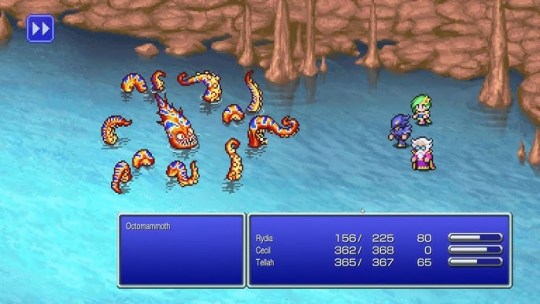
14. Final Fantasy IV Pixel Remaster - 1991 / 2021 - Steam - ★★★
Look: I get it, FFIV is an Important game as far as RPGs go. It has a lot of cute moments and characters and that classic Final Fantasy charm. But as someone whose Final Fantasy gameplay experiences start with 5 and end at 12: Boy, this game lacks a lot of gameplay depth huh.
It still has all the typical-yet-interesting Final Fantasy boss weakness gimmicks, but there's an odd lack of the "building" aspect of RPGs. Characters gain levels and stats, and you can gear them up... but there's no actual decision making. Any unique aspects of equipment ("hey this one resists XYZ element!") do not matter when the base stat growths will fundamentally always matter more. It doesn't even take advantage of its large "playable" cast as you can't actually choose who is in your party at any given time. It is a very linear, hand-holdy experience that honestly feels incomplete when looked at with 2024-eyes.
I did enjoy my time by-and-large with FFIV, but particular towards the end I was forcing myself to finish it mostly out of a sense of sunk cost. I don’t think it has aged especially well.
That said: the Pixel Remaster aspect of it is a fine port. I do wish these pixel remasters included the stuff from the Advanced versions though. The Advanced version of IV even bothered to let you pick your party at the end!
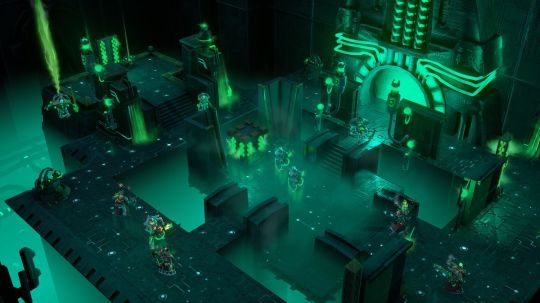
13. Warhammer 40K: Mechanicus - 2018 - Steam - ★★★
I'm not sure whether Mechanicus is too long or just fundamentally missing some additional mechanic that makes it last into the double-digit-hours.
It's an enjoyable enough tactical game, with some really neat mechanics built around a dynamic action economy, but once you upgrade your Tech Priests and solve that action economy, everything goes off the rails. The difficulty curve is quite lop-sided; the first few missions were quite intense, but while the game keeps introducing more advanced Necron units to combat you, it's just not enough to keep up with what you're capable of. By the end it's trivial to twerk on even the final boss in a single turn.
Soundtrack is excellent, and I'm still quite interested in Mechanicus 2 so hey.
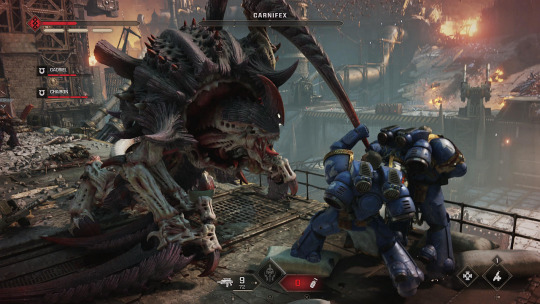
11. Warhammer 40K: Space Marine 2 - 2024 - Steam - ★★★★
The sequel to 2011's most surprisingly decent third-person shooter, Space Marine 2 is... largely ok! Ironically it's a bit buggy at times, and it's definitely better suited towards multiplayer than singleplayer as far as the campaign goes. Said campaign is... well, it's a Warhammer 40K campaign. You run around and shoot at bozos while yelling FOR THE EMPEROR a bunch. Last time had Titus fighting orks and general Chaos dipshits, now he's fighting Tyranids and *specialized* Chaos dipshits. Could use more enemy variety, perhaps with more... tactical relevance to the units? As-is you have a few must-kill annoying units but otherwise the combat can be pretty brainless.
It's not groundbreaking, but the Warhammer setting polish present here is pretty good. Servo skulls and cherubs galore. It's still funny that they *insist* on every one of these games starring an Ultramarine, when seldom do they bother playing into any of the stuff that makes Ultramarines interesting. If you're just running around shooting games and going GRRR, that could be literally anybody. Yeah, Ultramarines are the default these days, but you could just make a new Chapter with some interesting gimmick, or bring in one of the more thematically or mechanically unique chapters then. Honestly: Should have been Dark Angels.
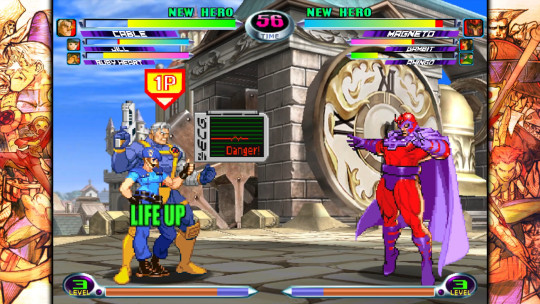
12. Marvel vs Capcom Fighting Collection - 2024 - Steam - ★★★★
it's mahvel baby
Good collection, I enjoy dicking around in here with friends. Doesn't bring anything particularly stunning to the table beyond the included products, and I'm not exactly planning on grinding so I can get Wazzler'd into oblivion. Them going out of their way to fix certain glitches but then patching the game to add a toggle to enable the Juggernaut glitch is very funny, I approve.
Pricing is a lil whack for what it is, but hey that's modern video games. Where's a new Capcom Versus game?
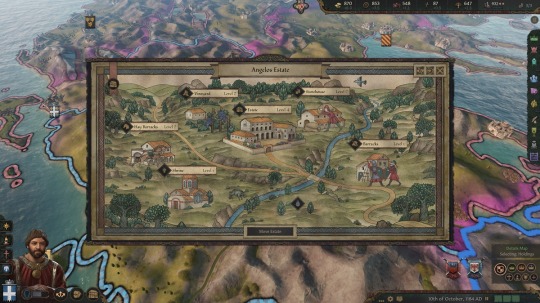
10. Crusader Kings III 2024 DLC - 2024 - Steam - ★★★★
CK3's DLC for the year was "Legends of the Dead", "Roads to Power", and "Wandering Nobles."
Legends of the Dead added plague and legend mechanics. The plague stuff is good, though it's either devastating or easily defeatable with little in-between at the moment. There is some anachronistic aspects I wish they'd change (isolating one's self away from the plague is a modern idea that would be alien to the time), but I understand that it's hard to handle people trying to metagame the realism of isolation otherwise. The legend mechanics are straight up mediocre; the act of formally promulgating your legend and paying folks to share your legend is just odd, and said legend benefits mostly you in life rather than your descendants after your passing. It's also oddly different from the existing reputation mechanics while thematically overlapping a little to much. I get that information is itself basically a disease that spreads in similar ways mechanically (mgs2-memes.jpg) but I don't think they did a good job with it here.
Roads to Power revamped the Byzantine Empire to make it more historical and appropriately unusual, and also added mechanics for dethroned nobles to wander the world seeking fortune in various non-land-owning ways. This DLC absolutely whips, just so many cool mechanics to interact with. Is it still in need of polish and balancing? Yeah, Byzantium is perhaps too powerful if it doesn't get crusaded early, and landless nobility are often weirdly strong if played properly, but overall: cool. I've done multiple campaigns as a wandering noble, including one where I was a mercenary hired by a Byzantine duke to help them in their wars, got some land off of it, managed to take over their holdings, survived the fall of Byzantium to a crusade, lost it all in subsequent Byzantine civil war after the Empire was reformed, and then the family returned to mercenary work in Italy... which I managed to levy into getting a descendant to become King of Spain. Coooooooooool stuff.
Wandering Nobles is... weird? It specifically just adds some more events (always good) tied to travel, and added some new lifestyles tied into that. It's weird having lifestyles outside of the skill pentagram but hey, if Stellaris can get do it so can CK3.
My main hope for CK3 at this point is that they'll get a Custodian team like Stellaris that enables them to continue to polish and better integrate old content, since they seem to be doing a great job on Stellaris (which I've taken a break from this year.)
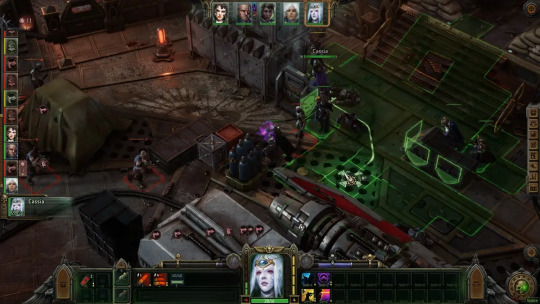
9. Warhammer 40K: Rogue Trader - 2023 - Steam - ★★★★
Yep, another Warhammer game. Been one of those years.
Rogue Trader could have been even higher up this list. There's a lot about this game that I really love. It's kind of the best example of the Warhammer setting in a video game, managing to capture the totality of how really shitty the setting. It gets across just how shitty life in the Imperium is, the casual cruelty of life. It gives you the option to try to be a Nice Guy, but also explicitly points out that this is not really looked upon well and can outright lead to your death depending on how things play out. The plot is kind of whatever, but it has some great set pieces and fun characters.
Gameplay-wise, it's a bit uneven in terms of difficulty- kind of easy in the back half even at the higher difficulties (like I said in the Mechanicus review: it turns out, knowing how to game an action economy helps a lot!) Some characters just are stupid busted throughout if you use them correctly (cough Cassia cough), and the way the RPG mechanics work you're almost never facing a non-100% skill check.
Owlcat isn't the biggest studio, and the game in general lacks a certain degree of polish that must to stem from their team-size and budget. The non-cutscenes where you essentially read a summary of what the cutscenes would have shown are... odd, if ultimately tolerable. But frankly, I'm still tempted to lower this in the overall ranking because the amount of weird gamebreaking bugs I encountered even playing it an entire year after initial release is absolutely infuriating. There's certain mechanics that have a tendency to just shit the bed, causing quests to just not trigger which can combine with points of no-return to lock you out of content. That kind of thing drives me absolutely nuts.
Also, because I want to complain about it and hey why not: the load times are maddening. Traveling between planets requires something around 5 different loads, more if you trigger one of the RNG events that require your intervention, and they're just too damn long. It adds unnecessary tedium to what is already a long game. And hey, guess what is the mechanic that tends to shit the bed? That's right: quest starts that trigger only when you travel between systems! Great!!!
It's only the core quality of the game as a 40K experience that keeps it where it is in-spite of all that. Congratulations?
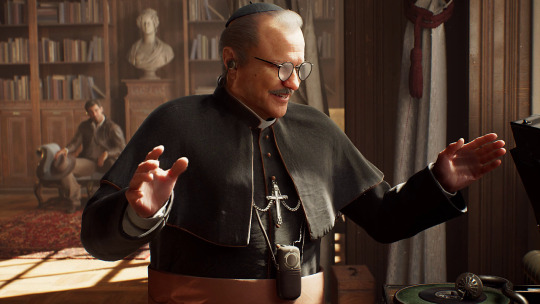
8. Indiana Jones and the Great Circle - 2024 - Steam - ★★★★
Man, I am in two minds on this game. MachineGames is a fantastic studio and I really enjoy the tone of their writing. This is probably the best Indiana Jones has been in... 30 years? But something about this as a game just isn't fully clicking. The big selling point is that you are getting the experience of being Indiana Jones, which... sure?
The gameplay is serviceable; the first-person brawling is okay, if pretty bland. Since a lot of the game revolves around that: okay, not great. The exploration stuff is cool, and the puzzles are... well, they're video game puzzles. This is no Return of the Obra Dinn. But the experience of doing the puzzles is fun!
Honestly, the best part of the game may just be as a looking-around-and-looking-at-stuff simulator. You put loving crafted artifacts and news paper articles and books around and I'm going to stop and look at them and go "huh, neat!" Spent a not insubstantial part of the second-part of the prologue just looking at random museum pieces while ominous spooky man chanted in Latin a room away.
I guess to the answer the question of "Does this feel like Indiana Jones?" my answer would be "Perhaps too much." It does a great job of capturing the feel of the movies, the setting, and the feel of Indiana Jones action, but it doesn't bring much of anything new to the table. The game is best when its more evocative of the brilliance of MachineGames' Wolfensteins, with its amazing side characters, goofy cutscene shenanigans, and amazing setting-specific set pieces. I wish it'd lean harder into that instead of the films.
Unrelated to that point: It's very funny that Indiana Jones ancillary media has consumed most of the "interesting" historical artifact / archeology tropes, such that this one had to juice the story with five different gimmicks layered on top of each other. Not going to spoil any of it, but we're starting to approach the territory of "Indiana Jones and the Biggest Foot" which frankly I'm here for.
Anyways: Raiders > Last Crusade > Temple > This > Dial > Skull

7. Dragon's Dogma 2 - 2024 - Steam - ★★★★
Dragon's Dogma 2 is... more Dragon's Dogma? Honestly, this is my first time playing Dragon's Dogma myself rather than just watching others play it, and I enjoyed it a fair bit, but it is weird how little seems actually changed from the original?
It's a new world and a new engine, and certainly there's been changes to things like mechanics and quests and NPCs and adding new bosses etc... but so much of the game is the exact same, even retaining the old jank I've heard people complain about for a decade now. It's incredibly fun and even funny at times, but I think it could have used some more time in the oven, some more polish, maybe just more resources for the team to add to the experience. Also: could really do with a couple more enemy types. Things can get pretty repetitive after a point.
The decision to do essentially the same plot again when the "twist" of the original game was so well received is odd. The new elements they layered ontop of it to differentiate from the original only to make the core plot less interesting. The more I think about it, I think I'd prefer they have done something more unique in the vein of OG Dragon's Dogma rather than just completely carrying all the architectual details of the setting over to this release.
A shame that Dragon's Dogma 2 seems like it will never receive its own Dark Arisen.

6. Castlevania Dominus Collection - 2024 - Steam - ★★★★★
This collection bundles my favorite Castlevania games into a single package. Enuf said.
You should play Order of Ecclesia, it's a great game.
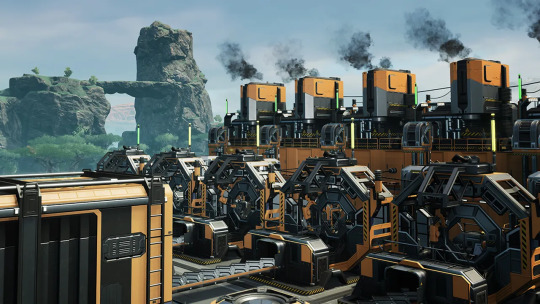
5. Satisfactory - 2024 - Steam - ★★★★★
I am very aware of my gaming habits: I'm a gorger. If I REALLY enjoy a thing, I shove it into my mouth until either it's gone, or I get sick of it and throw-up. This is why I avoid early access releases as a rule; I know I'll fill myself up on the appetizer and have no room for the meal. From afar, it was obvious that Satisfactory was something I was going to enjoy, and so I waited for the full release...
And hey yeah Satisfactory is an excellent addition to the "technology-tree time-hole" genre. Organizing infrastructure and automating a 3D factory layout that is constrained by geography and resource availability is awesome. There's some open-world exploration and mild combat aspects that are fine mostly as a way to add more technology-tree gating, but the focus really is on constantly tweaking or redesigning factory spaces to better use space and resources to produce widgets to advance progression or build *other* widgets that let you make other bigger things etc etc.
There was multiple times when hanging with friends on Discord where I made the offhand comment of "I should probably eat something..." several times over the course of an 8 hour period, as friends got increasingly exasperated at me time-holing myself ever deeper in factory optimization instead of making a sandwich or something. That's the kind of game Satisfactory is.
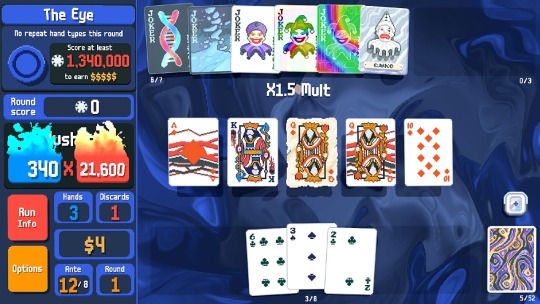
4. Balatro - 2024 - Steam - ★★★★★
Balatro is far better than it has any right to be. Why the hell is a run-based deck-building poker game so good? How does it manage to hold up after over 80 hours?
There's something Tetris-esque about how you engage with Balatro. It's a puzzle game that is zen-like it how it engrosses you. Failure is inevitable, you're just seeing how deep you can go with your luck and deck-building skill.
To voice a mild criticism: the nature of the RNG and the gameplay (cards) makes it hard to "outplay" certain bad rolls on Jokers, particularly early on. Truly good runs are very luck-dependent, and you often have to commit very early to a game plan (e.g., all-in on Flushes) before you know that you're going open the Jokers that make that game plan work. Nature of the beast, but it does lead to me leaning on the secret quick restart (hold R on keyboard) a bit too much as a result.
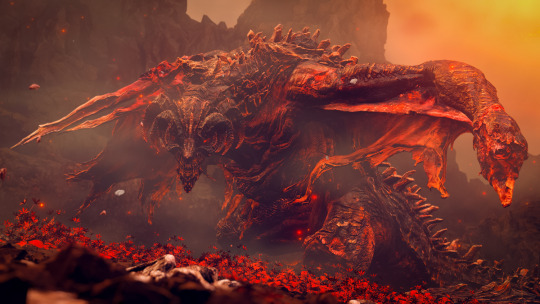
3. Elden Ring: Shadow of the Erdtree - 2024 - Steam - ★★★★★
Elden Ring was nearly my Game of the Year in 2022, and Shadow of the Erdtree is a fantastic addition to it. There's amazing new bosses, weapons, and areas. As a Lore Enjoyer, I appreciate the additions made to the overall narrative and setting of Elden Ring, and the music is pretty excellent, a criticism I had with the base game.
That said, it does suffers from similar flaws as well: exploration is kind of weak, with big empty areas dotted with little nuggets of content. There's some bosses that are real stinkers, with tons of health and tedious attack patterns. Frankly, they ramped up this aspect here; it feels like they took the wrong lessons from Malenia. Also, good lord do I hate the Furnace Golems, what an obnoxious enemy.
But the good bosses are some of the best From has ever done, and the little mini-dungeons are far more interesting than anything in the base game. Playing through the DLC was a real treat.
The fact that there's an Elden Ring multiplayer run-based spinoff coming next year is absolutely mental. While that's not necessarily what I'm usually looking for in FromSoft titles, I'm all-in at this point.
youtube
2. Caves of Qud - 2024 - Steam - ★★★★★
If you encounter a dreamcrungle in the depths of the Moon Stair, beware their crungling gaze. If you you are crungled, you’ll be subsumed into a dreamscape where you’ll awaken as some other entity, perhaps a bear, maybe even a robot. If you gain sufficient experience in your newfound form, you’ll awake pleasantly enlightened, the dreamcrungle sated. However, if your original body dies as you dream, your temporary oneiric will come to a final tragic end, your mind dissipating into nothingness. A tragic end, but that is itself all too common in salt-blasted land of Qud.
Caves of Qud is the ultimate roguelike, perhaps the ultimate RPG. It is alternatively weird, goofy, and funny. You will die in so many inexplicable ways. But the knowledge you gain from those deaths will make you ready for future adventures, with different characters and paths. My current adventurer is a mutant tinkerer with four arms, each wielding an axe. He’s specialized in the art of multi-weapon fighting, allowing him to use his many arms to slice foes to pieces in a blink of an eye. But I could also be a potent psychic that dominates people, a birdman gunslinger, a birdman swordman, a cyborg knight, and so many more things besides. I could use a spray-a-brain to give life to a chair, then transplant my mind into that chair as my original body dies, continuing my adventure as the chair.
There are thousands of ways to build your character and progress through the world. The dynamic worldgen and mechanics interact in ludicrous ways. Almost everything on Qud is sapient and a member of an overarching faction. Who you befriend— or kill— can have wide-ranging and sometimes absurd repercussions. For awhile there I was persona non-grata with turtles, which made traveling through desert canyons an interesting challenge. But I can always rest easy knowing I’m beloved by dogs, welcome in their holy places.
For all the “wacky” aspects of the generated world, the setting and non-generated writing of Caves of Qud itself is quite excellent. The nature of Qud, a place both seemingly post-apocalyptic and futuristic, is one I leave you to discover. Live and drink, friends.
Also, as a weird side note: I’ve been playing exclusively on controller and it works exceptionally well? That seems like it shouldn’t be the case given its general aesthetic, but here we are.
twitch_clip
1. Robot Alchemic Drive - 2002 - PlayStation 2 - ★★★★★
OK, look: I realize how fucking bonkers it is that Robot Alchemic Drive, a game from 2002 you have either never heard of or never thought about for longer than five seconds is my 2024 game of the year. Here’s the thing: RAD fucking rules.
RAD is best described as super robot QWOP. You control a giant super robot using an unusual set of controls where each joystick is mapped to the mecha’s arms, and the motion of the stick controls how the punches are thrown. The shoulder buttons give you manual control of each of the robot’s feet, stepping forward and backwards. Additional buttons and inputs enable special attacks like missiles, rocket punches, diving super kicks, etc. It’s a really bizarre system that makes up for half of the game’s difficulty.
The other half is because you’re not piloting the super robot. You instead control an additional character in the world who is operating it from afar, like Tetsujin 28 or Giant Robo. This puts the player character in the middle of the danger, forcing you to position yourself so you can actually see what you’re fighting while also keeping yourself as best you can out of danger. Sometimes the building you’re standing on gets knocked down under you. Sometimes you accidentally blast an alien robot so that it falls on top of you. You can sit on your robot’s (a “Meganoid”) shoulder, giving you the best possibly vantage of the robot you’re trying to control, but that also puts you at risk of getting punched off it and sent flying for three blocks.
So you’re awkwardly controlling a giant robot to fight other giant robots while you can barely see and the city is getting blown up around you, often by your own arsenal as you attempt to defend it. This is a problem, as you need to try to minimize damage to the city to ensure you get money to upgrade your Meganoid. Being careless also puts Nanao’s current place of work at risk, and nobody wants that.
Oh Nanao. A not-insubstantial amount of the game revolves around your childhood friend, Nanao, who is in the depths of poverty and working like 5 jobs. Her grandma, home, and workplaces keep getting destroyed, which doesn't help. Nanao, while nice, is the dumbest child alive who must be protected at all costs. A non-substantial part of the game is built around trying to protect Nanao’s workplaces, “accidentally” destroying businesses that threaten her livelihood, etc. On the flip side, if you are for some ungodly reason anti-Nanao (???), if you destroy Nanao’s workplaces consistently throughout the entire game Nanao will take her own life. This is an insane mechanic, but given the easy emotional attachment to Nanao: it certainly raises the stakes!
RAD’s writing is deliberately cheesy as hell, and it’s paired with a dub that is absolutely spectacular in how corny it is. They hired a company that exclusively made corporate instructional videos, zero audio direction was given, and boy does it show. It is one of the funniest games I’ve ever played, the writing and the voice acting together are just so unbelievably stupid. God I love it.
It is crazy that people don’t know or talk about RAD. The developer, Sandlot, exclusively makes Earth Defense Force titles now, with RAD all but forgotten. Part of the reason, I have to imagine, is that it didn’t run great on actual PS2 hardware— but emulated it runs like an absolute dream.
Is it a perfect game? Absolutely not. But it is by far the game that made me smile the most this year. An absolutely unique gaming experience unlike any other. Someone should port this to modern technology, put out PC or something, get it in front of more people because holy shit.
#nonfiction#think piece#game of the year#video games#robot alchemic drive#nanao#caves of qud#warhammer 40000#balatro#elden ring#casltevania#dragon's dogma 2#satisfactory
19 notes
·
View notes
Note
Couldn’t help but notice in your comment response on The Face of Spring that you seem to have some HCs in mind for the unnamed sisters of Théoden. If there’s anything you’d like to share on them, I am (as always) DEEPLY interested in thoughts about the most obscure of the Rohirrim! (No pressure, though, if there isn’t anything you want to say beyond that comment or if you’d rather keep it all for a fic or something going forward! 🙂)
I know I said I would take a while to answer this, but I was on public transport for hours today and this lot took over my brain, so here we go!
First of all, I would like to say that I have been influenced by your headcanons in some regards (highly recommend to fans of Rohan and obscure female Tolkien characters). For example, Théoden’s two eldest sisters have Gondorian names, although only one chooses to continue going by hers her entire life, and some of them also share similar fates.
Secondly, it is very important to me for the sake of torturing myself and the House of Eorl that Thengel and Morwen’s children die in the reverse order that they were born in, i.e. Théodwyn dies first and Gildis outlives all her siblings.
There is a noticeable bias towards Gildis in terms of headcanon material. This can partly be blamed on her living longer but is also just because as an eldest sister I am biassed toward my own kind (see Ivriniel).
Gildis (T.A. 2945 - Fo. A. 4):
Morwen chose this name as a means of honouring her husband’s heritage (since in Gondor the Rohirrim are traditionally seen as being direct descendants of the House of Hador and Gildis was Hador’s wife) while still choosing a name which would not be too out of place in Gondor.
The shortest of the siblings, at slightly smaller than Thengel’s height.
She had the strongest connection to Gondor, due to leaving it at age 8, and left Rohan in her early 20s to return to Minas Tirith. It was very difficult for her, since she had the distinct impression that her sisters resented her for leaving and her parents envied her. Before she left, Théoden and she definitely had a long, oldest siblings chat about the whole thing and he was the one she left on best terms with.
The child that Thengel was closest to and in whom he saw most of himself, which caused a fair bit of strain when she left. She wondered sometimes if her father’s coolness towards her came from the feeling that she was repeating what he did to Fengel.
Had the true ‘girl who is just like her father’ experience and she hated it.
She would become a scholar and an expert in women’s writings from early Gondor, even organising for several collections of old poetry to be properly translated and (re)published. Thanks to her time in Rohan, she also had a higher interest in oral histories than most Gondorian scholars.
She and Théoden continued to write to each other up until Gríma’s influence grew and Théoden sickened.
One of her favourite memories of Théoden was when he came to Gondor to attend the wedding of Caeveneth (one of Denethor’s sisters). The wedding itself was a bad start to a bad marriage but you wouldn’t know that talking to Théoden and Gildis because they spent the entire time catching each other up on gossip and becoming giggling drunk messes (once out of the public view of course).
She loves Gondor and does not regret her decision to leave Rohan, but she does miss her family a lot (nothing like moving to a different country to make you forget how annoying your baby sisters can be).
She’s something of an introvert, so wasn’t close to any relevant characters in Gondor (although I like to think that she and Faramir had a few nice conversations and that she has desperately tried to correct Duinhir’s pop-culture understanding of some historical events).
She's aroace (a concrete sexuality headcanon? from me?? will wonders never cease!?).
Has massive guilt surrounding the deaths of all her siblings, despite knowing logically that she couldn’t have stopped any of them. Elfhelm had a chat with her after the war about everything that went down with Gríma and Théoden and the kids and it was definitely one of those conversations that has both of you leaving it with a splitting headache, sore eyes and the feeling that someone just ripped your chest open with a saw.
She definitely helps Faramir learn Rohirric (although she is a bit rusty, it has to be admitted) and she develops a friendly relationship with Éowyn, although she does struggle at first with how closely she resembles Théodwyn and her mother, it’s vaguely disconcerting to her.
She outlives all her siblings and lives to see the Fourth Age of Middle Earth, dying in her sleep.
Moriel/Hrithwyn (T.A. 2952-3010):
The only one of the siblings to have Morwen’s hair colour, for which she was named. When they moved to Rohan, she pushed for a Rohirric name since, as she pointed out to her parents, she was too young to even remember Gondor when they moved, hence Hrithwyn, which means ‘storm-joy’ or ‘lover of storms’.
If you deduced from the name that she was the type to go for a walk in the rain then you are right and it drove Morwen round the bend.
She loved riding and horses and just generally doing her own thing, something which she never lost throughout her life.
Drove Morwen to despair through her sheer inability to just sit still and do as she was told. They definitely had a few fights about her being irresponsible, which Hrithwyn always thought very ironic since she considered herself very responsible in view of the fact that she looked after Cyrtenes, her younger sister, who Morwen invested very little time in.
She liked her husband and they got on well, but they just weren’t really interested in each other, so no children came from that marriage, much to her parents’ frustration.
She spent most of her time with horses and actually oversaw the breeding and training of quite a few. Partly because of this and her generally very straight-forward nature, she was quite popular with the people she worked with, making her probably the member of the family most connected with people on the ground. Quite a few of these horses and their descendants were still in use by the Mark’s eminent warriors at the time of the War of the Ring (and quite a few of the black ones - which were Hrithwyn’s favourites - were in the service of Sauron :( )
She was the one who made sure that Éowyn got Théodwyn’s dagger that she has in A Monster in the Shadows and helped to teach her and Éomer how to ride.
She also had a massive sweet tooth and would bring her nieces and nephews sweets. She continued to do this for Théodred way into his adulthood (he did not complain).
Tended to be a bit bluff and was probably the least politically in tune of her sisters. Even Gildis, who was not into politics, would send Théoden info that she thought might be relevant to him about goings-on in Minas Tirith and Cyrtenes’ gossiping tendencies did come in handy now and then. Hrithwyn just struggled to care about things that weren’t horses, bless her.
She died due to taking a fall while out riding.
After her death, Théoden had a tapestry commissioned of her. It showed her astride her favourite massive black horse, on top of a ridge as the clouds came in. This tapestry was one of the decorations which Gríma had removed when he was securing his influence over Théoden, partly because it depicted his sister, partly because she was looking a little too capable and defiant in front of those rainclouds for Gríma’s liking.
Her death was something of a problem, since it marked the end of Théoden having a sibling at his side to act as an advisor and support. This also happened right at the start of Gríma’s tenure and it definitely did not help stop his rise to power.
Cyrtenes (TA 2955-3007):
Her name means ‘elegance’ or ‘beauty’, the latter of which she had from pretty much minute one and the former of which she eventually got as well.
Tended to get ignored within the family. Gildis was the oldest girl, Théoden was the only boy and heir, Hrithwyn tended to get attention because she was constantly riding off somewhere and Théodwyn was the baby of the family, so Cyrtenes kind of slipped through the cracks, which she did resent just the teensiest bit.
Wasn’t necessarily that close to Théodwyn because of this (and the 8 year age gap) but by the time they were adults they got on okay, even if she was at first jealous of her younger sister’s more successful marriage.
Morwen and Thengel were both kind of going through parental fatigue at the time that she was born, plus her being the first one born outside of their preferred home of Gondor, which all definitely contributed to the problem. Ironically, Cyrtenes was the daughter who tried the hardest to conform to Morwen’s idea of what a noble/royal woman should be.
Definitely the sibling most likely to pick a fight. Gildis was too mature, Théoden was too nice, Hrithwyn was not paying attention/not there and Théodwyn was too young most of the time, which left her free to be the difficult one.
The most conventionally attractive of the sisters. Théodwyn was known for being beautiful, but in a bit of an austere, Númenórean way (I say this as someone who loves people who look that way, by the way), while Cyrtenes was softer and more ‘Rohirric’ looking.
Her own marriage was a bit of a disaster. It went okay for the first few years, but it rapidly became clear that she was putting more into it than he was (and more for the sake of that being ‘the thing that was done’ than because they were actually good together) and that they ultimately weren’t that well suited.
Still, they managed to have a daughter, Idis, who unfortunately suffered from bad health and eventually went to stay with her Aunt Gildis.
As time went on, Cyrtenes did learn the hard way to get on by herself and became a very efficient lady of the house, accidentally coming the closest to being her mother than all of her siblings.
She’s probably the sister who grows the most over the course of her life. For her teen and young adult years she’s shallow, anxious, fretful and a bit mean, but over the course of her adult life, she gained a calmer, more mature outlook and greater confidence in herself outside of playing a part. Her temper was still something to be watched out for, but she tended to direct it more calculatedly when she was older.
Resented Gildis for getting to essentially be mother to Idis, but by that time she was old enough and mature enough to eventually realise that she wouldn’t want Théodwyn to resent her for helping look after Éowyn and Éomer. Towards the end of her life, she struck up a correspondence with Gildis for the first time since she left and they were able to develop something of a friendly relationship. In one of them she made a joke about the habit ‘among Thengel’s children of passing their children between each other for mothering. Anything to avoid looking after our own offspring.’
Had a few affairs over the years (Elfhelm, I’m looking at you) but they were all pretty lowkey and short-lived since she was quite busy and didn’t want to cause a scene (we can’t all be Ivriniel, after all).
She and Théoden became closer after Théodwyn died, as she helped to look after Éowyn and Éomer, which is nice since they weren’t really that close before.
She died of cancer after a long and indignant struggle, with Hrithwyn, Théoden and Elfhelm in the room with her. She was the only one of his sisters whom Théoden was able to be with when she died.
Thank you so much for this ask, it was so fun to firm up my headcanons about these three and expand on their personalities more. I love the chance to blather about textual ghosts, and this was so enjoyable, so thank you! 💚💚💚
13 notes
·
View notes